#some of the words and the irregular verbs' conjugations do mess me up but its alright! im having fun
Explore tagged Tumblr posts
Text
ehehe...
#terrible day otherwise for unmentioned reasons but i got to learn italian some more!#my favoritest little book ever i am enjoying it so much. its very fun#personally i hate that i can't simply take the book and feed it into my brain and then i just know. but its alright#some of the words and the irregular verbs' conjugations do mess me up but its alright! im having fun#also i can make simple sentences very easily now! i don't know nearly enough conversational phrases though.#i hope to learn more day-to-day speech once im done with this book and its 500+ pages but for now i think im on a good path#its very fun! the different rules are very fascinating to me even if they get confusing at first#i love that you conjugate verbs according to subject/object i love it. i love the different ways to say ''the'' i love that you can form -#- the same sentence in many ways i love that the general order for sentences can be broken without changing much of anything i love it.#it is very interesting to me#i also really enjoy that there are three different state pronouns go into!#io me mi tu te ti lei le la etc... my bestest friends#''bestest friends''<-they mess me up and force me to think for a second#nonetheless i am having a lot of fun. i wish i had super-speed so i could learn all of this instantly#oh i do have to go back to check vocabularies though... very unfortunate that i can't keep all the words in my head at all times#🌙rambling
6 notes
·
View notes
Note
Hey Profe 🍓:
Can you guide me through esdrújulas and how commands become them? They require the tílde, right?
When words are esdrújula, yes they require the tilde... not all commands are esdrújula but we'll get into it this is going to be a long one; but just know, it's not something you fully get at first, it's a pattern you recognize and keep recognizing as you go
I just want to quickly state that the entire topic is related to whether words are aguda, grave/llana, or esdrújula which is a very large topic that is a bit confusing - but it basically describes where you put your vocal emphasis on a word depending on if it ends in a noun, a consonant, N or S...
Again, not something you "learn" exactly but a pattern you realize you've been recognizing and how you know how to pronounce a word based on a pattern you've probably noticed without even trying, but then trying to understand it academically which is the weird part
Very big topic linguistically; I recommend looking it up on youtube but it's related to how to predict where to put a vocal emphasis on a word and if it should have an accent mark depending on syllables and what the word ends with
-
For your purpose though you're talking about esdrújula which means that a word has its vocal emphasis on the third to last syllable [antepenultimate]
A common example is la brújula which is a "compass"
The syllables in that are brú-ju-la
...That la is the last [ultimate] syllable, the ju is the second to last [penultimate], and brú is the third to last [antepenultimate]
Without an accent mark you would be inclined to put the emphasis on ju but because its emphasis is on brú it gets the accent mark to tell people that so they don't pronounce it wrong
-
With verb conjugations you're looking at more of a.... I don't know what the right word for it is but let's just say "imposed esdrújula"
By that I mean you're adding syllables to a word and that will change how it's pronounced
This is the basis being un making algún, ningún, or a counting word like veintiún "21 (of something)" have accent marks
By adding extra syllables you moved where the vocal emphasis would typically be. To make sure you understand we're talking about a root of un "one", that now takes an accent mark because if you didn't people would be pronouncing it wrong
[I said I wouldn't really go into it but most nouns ending in N have their vocal stresses on the second to last syllable like dicen, tienen, viven, hablan etc. because you want people to recognize un is from uno and related to "one" you're putting emphasis on that syllable which is unusual - hence an accent mark to keep people from messing it up]
This is the same idea behind seis as 6 turning to dieciséis 16 because people want you to know that it's related to the number 6, but most words ending in S have their vocal stress on the second to last syllable like tienes, caramelos, dulces, manzanas
Words like el compás "rhythm", además "furthermore" have the same vocal stress on the last syllable and end in S so they need the accent mark to not confuse people
-
Verbs also do this with commands, as well as some that use the infinitives or gerund forms + indirect objects, direct objects, and reflexive pronouns
With a verb in a command + objects, you're also adding syllables while also trying to keep the vocal stress originally where it was:
Habla. = Speak. Háblame. = Speak to me.
You turn a two syllable word into a three syllable word; but by keeping the stress on the same syllable you then need to add that accent mark to make sure people don't emphasize "bla"
This is the same for hábleme, or háblenme for usted and plural commands rather than simple hable, hablen.
...
This is somewhat different for a monosyllabic verb [often dar] or a verb with an irregular monosyllabic conjugation:
Da. = Give. Dame. = Give me. Dámelo. = Give it to me.
esdrújula by its nature needs at least three syllables, so immediately dame as a command only has two and works like normal so no accent mark, suddenly by adding a third syllable but still saying da has the stress means you need the accent mark
A somewhat unique thing then happens in usted it's that as an usted command it's dé "give", to differentiate it from de "of" it has that mark. But deme has no accent mark because it looks like a normal word with no accent mark needed - again better explained in a discussion of words that are either aguda or grave/llana - but then démelo "give it to me"
Another common one is poner to pon as a command but with reflexives and a direct object:
Pon. = Put. Ponte la ropa. = Put on your clothes. Póntela. = Put them on. [la ropa, collective noun] Ponte el vestido. = Put on the dress. Póntelo. = Put it on. Ponte los guantes. = Put on the gloves. Póntelos. = Put them on. Ponte las botas. = Put the boots on. Póntelas. = Put them on.
...Again compared to ponga in usted which already has two syllables, póngase "put on" or póngaselo-la-los-las can work like that too
This is also going to be why you see some verbs that have roots with poner, tener, venir etc conjugate a bit weird... like mantén is because ten is the command of tener for tú, now you have another syllable as mantén from mantener and it's a whole thing
...
Now I mentioned infinitives and gerund, and again this is easier to spot but it has to do with syllables again
Infinitives all have their tonic stress on the last syllable, so when you add things you're moving back that syllable from ultimate to penultimate to antepenultimate...
Necesito decir... = I need to say... Necesito decirte... = I need to tell you... Necesito decírtelo. = I need to tell it to you. / I need to tell you. Debo dar... = I should give... Debo darte... = I should give you... Debo dártelo. = I should give it to you.
This is why you might see something like ahora tendrás que vértelas conmigo as it's "you'll have to deal with me" but literally verse las caras "to deal with" kind of like "to see face face to face", so it became "see them with me" in a way as vértelas
Another common one is apañarse las coas "to handle things", and then sometimes as a command apáñatelas "deal with it / figure it out" or necesito apañármelas "I need to deal with it (myself)"
With gerund you're talking -ando or -iendo or -yendo. They're already multiple syllables so they always have an accent mark [on the -ándo, -iéndo, -yéndo] if you add to that word with a direct object, indirect object, and/or relflexive:
Me estás mintiendo. = You're lying to me. Estás mintiéndome. = You're lying to me. Se está volviendo loco/a. = They're going crazy. Está volviéndose loco/a. = They're going crazy. Les estoy diciendo la verdad. = I'm telling them [or "you all"] the truth. Estoy diciéndoles la verdad. = I'm telling them / you the truth.
-
What (thankfully?) makes this easier is that you can hear it and produce it pretty intuitively
It's just that the accent marks with esdrújula and especially with verbs is there so other people don't read the words wrong
It becomes a confusing topic because it's describing a thing a lot of people do naturally, but you can tell when someone gets the emphasis on the wrong syllable because it will sound off
16 notes
·
View notes
Text
Mistakes
A/N: this is the first section of my WIP star trek fic. See the tags before reading if your interested, and please let me know what you think!
The last time Jim ever saw his aunt alive, she was crying. He was thirteen and being led onto a bus alongside his cousins and had glanced out the darkened window on a whim. She had been standing in the doorway to their farmhouse, clutching little Sarah’s favorite blanket, arguing with one of the large men dressed in black that had come to take them back. The man had laid his hand on his belt, saying something, and Aunt Josie had broken down crying. Through a cloud of red dust as they drove away, Jimmy saw her fall to her knees and sob. Tear tracks cut through the dirt on her face, leftovers from when they’d been playing in the garden earlier. They turned a corner and trees finally blocked his view, and he turned back to talk to his cousins.
He was only supposed to be on Tarsus IV for six months. Driving the car into the canyon had been the last straw, and even though they’d ‘worked things out’ with the cops, Jimmy knew he’d pushed too hard. Frank was fed up with him and he’d been suspended from school again and his mother was still out there, exploring space without him. Winona said she would be earthside ‘in just six months, Jimmy, it’s only six months,’ and that this was just a stopgap to get him away from his step-father. What a load of bull that was, not that he’d say it to her face. Two months in, when he moved into boarding school full-time and wasn’t counting down the days till his shuttle home, Winona messaged him. She told him her ship, the U.S.S. Faragaut, would be delayed eight additional months and for the first time, he wasn’t heartbroken. Fourteen months in the colony, he could make it fourteen months. His aunt actually liked him, she never even hit him, and his cousins didn’t treat him like a burden the way Sam used to. Classes challenged him, for the most part, and he got to go back home every weekend to see his aunt and the farmhouse. Sure, meals weren’t that big, but Jimmy had never really gone hungry here, either. Tarsus was good. Life was good.
This time, though, as the farmhouse faded from view, he could tell his Aunt knew something was different. Clouds of red dust obscured his view and it felt like he was losing something, somewhere he’d finally started to call home. It was silly to get so melancholy about a semester at boarding school, he’d thought. He’d thought a lot of things that ended up being wrong.
It was two Saturdays later when Jimmy and Will wondered if something was wrong. A full two weeks since they had seen the rest of their family. They were sitting on his cousin’s bed, each with a PADD in hand, working on their homework. Their teacher, Hoshi, had been grilling them on languages, and despite Jimmy’s efforts Will couldn’t grasp Vulcansu conjugations.
“No, see, it’s a past tense irregular verb, and you forgot the hyphen-”
“Jimmy.” Will interrupted him, something he never did. His face, normally an open book, was drawn and stiff. Jimmy held his tongue and swallowed back his knee-jerk snarky response. His cousin took a deep breath, held it for five seconds, and let it out in a huff.
“I’m worried about my mom. She hasn’t been responding to my comms all week, and Mr. Davies told me we aren’t doing home visits next weekend, either. I just… I know you think it’s stupid to get all worked up over family, but this isn’t like her.”
Neither of them said anything for a minute, both brains running through the options. Finally, Jimmy sighed. He knew his cousin well enough to know where his mind had immediately gone, and had an idea of how to deal with it.
“Look, Will, I do understand where you’re coming from. If you’re really that worried about Aunt Josie, how about we go see her? Will that make you feel better?” Jimmy tossed his PADD aside and stood up, stretching his arms over his head and groaning exaggeratedly. Honestly, he’d been wanting to stretch his legs too, but hadn’t had the right opportunity to sneak out until this moment.
His cousin wasn’t convinced yet, though. “What do you mean? How are we supposed to get home if buses aren’t running to the farm?”
Jimmy smirked, tilting his head and glancing back. “Why, we’ll be breaking out, of course!”
That line sealed the deal. After all, Will was a bad boy at heart, too.
It was dark out by the time they could put their plan into motion. The double moons were rising in the west, casting everything outside the range of the street lamps in a faint, pale light. They took a walk in the botany gardens after dinner, a fairly inconspicuous thing to do. Subconsciously, Jimmy noted that a few of the plants seemed wilted, white flecks spotting a few lower leaves, but he wasn’t a botanist and so made no comment. Will kept an eye on the teachers that patrolled the area while Jimmy made his way to a shadowy corner, the one place he knew of that the cameras wouldn’t see him. From there, he accessed the security system from his PADD - he’d been teaching himself programming since he was five, sitting in the back of his kindergarten classroom, it was a breeze to hack these types of systems - and ran a loop of camera feed. From there the two made their way to the chain link fence that surrounded the school.
The principal told them it was to keep wildlife out, since Tarsus had some rather nasty native predators. Of course, there was a hole in the fence that Jimmy had known about for a few weeks, and nothing had managed to get in, so he didn’t know the validity of that statement. The gap was barely big enough for him to squeeze through, scrawny as he was, but he’d kept it in the back of his mind in case he ever wanted to sneak out. There hadn’t been anything suspicious going on, at least as far as he was aware, so he’d had no reason to utilize it before this night. He was enjoying his classes, and had no reason to mess around. At, least, not until then.
Jimmy went through first. After making sure the coast was clear, Will forced his way out, too. The fencing groaned, and they both held their breath for a minute before determining no one else had heard. After that, it was smooth sailing for the rest of their ‘escape.’ The fence opened up into a thick forest, full of a mix of native and terran flora that formed a dense canopy and heavy shadows. They could still use the moonlight and their knowledge of direction to make their way towards the nearby town of New Franklin. The school they attended was fairly secluded, so their hike took nearly an hour. The principal and teachers, when asked, had said that the governor thought it important that students learn astronomy and botany and all types of things you couldn’t study well in the city, so their school was the only thing this far out. They were surrounded by forests on one side, and a massive plain on the other, and as far as one could see there was no other sign of civilization. When he first got there, Jimmy had thought all the greenery was wonderful. Now he was starting to hate it, as he was slapped in the face by yet another palm frond-looking thing.
Eventually, pushing through the thick greenery native to Tarsus, Jimmy thought he could hear the murmur of human life. It was about time - they still had to consider the hour-long drive to and from the farmhouse, and he wanted to get a little bit of sleep that night. Their plan was to either hitch a ride from a kind stranger, an idea Jimmy wasn’t a big fan of, or steal a vehicle, something Will didn’t like - even though Jimmy had argued that they wouldn’t really be stealing, they'd be borrowing with the intent to bring it back unscratched. That argument was part of why they’d gotten started so late, and now Tarsus’ first moon was more than halfway through the sky. Its blue face watched them as they foraged on through the woods, unwavering and unyielding in its faint light.
They popped out on a paved road, the outlines of squat, wide-spread buildings against the tapestry of stars the only sign of civilization. There were next to no lights on, Jimmy noticed. No street lamps, or illuminated windows, or headlights. He’d have thought the town was dead, if not for the hum of generators he could still make out. A curfew, then? Why? Neither of them had any answers, but this did throw a wrench in both their transportation options. More so Will’s favored plan than his own, though his would be difficult to pull off too.
Well, there was no way around it. The two boys exchanged glances - neither had said a word their whole adventure other than to warn the other of a hole or tree branch, too scared of being heard and caught - and advanced towards the dead town. Jimmy knew more than enough about hotwiring to be able to steal most civilian vehicles, and Will had been driving aunt Josie’s truck for the past year, so they were rather confident in their abilities. But that all depended on whether or not they would find something to steal.
The first couple of buildings they approached were barren. Jimmy could make out the muffled sound of human voices and movement behind the walls, but there were no vehicles other than a couple of rusting bikes parked out front. The first hovercar they saw was all black and parked in the middle of town square. The engine was still running, but no one was sitting inside the car. Jimmy made a mental note of it and kept creeping along, hoping for a less suspicious get-away vehicle. The next one they saw was sitting in front of a small house. The car itself had four wheels and more than a little bit of rust, but it obviously hadn’t been used in the past few hours. The house it was parked near, similarly, didn’t show any signs of life. Neither Jimmy nor Will wanted to think very hard about that fact. Still, this was a better option, less likely to be noticed missing if they could get away quietly. Jimmy cracked his knuckles, gave his cousin a grin, and eased the driver’s door open.
Since he’d been old enough to start developing his fine motor skills, Jimmy had been playing with wires. Maybe not a sign of the safest childhood, but it certainly had its perks. For one, he could open a panel inside any car, four-wheeled or hovering, and get it running in under five minutes if it was a model from the past half-century. Thankfully, this one was. Another thing Jimmy was thankful for, he considered once the engine hummed to life, was that 23rd century cars were so much quieter than previous renditions. Not even the house a block over could hear it starting up. Will nudged his cousin over, crawling into the driver side and adjusting the seat to his liking.
“I’m still sticking by my argument that I could drive this puppy just as well as you,” Jimmy grumbled from where he was buckling himself into the passenger seat.
Will ignored him, throwing the car into gear and ever-so-slowly crawling out of the driveway and onto the road. “How the hell am I supposed to navigate all the way home if I can’t turn on the headlights?” he hissed, peering over the steering wheel in a way that didn’t really give Jimmy much confidence in his abilities.
He sighed, hunching over the center console and pulling out more wires from Will didn’t even know where. In between stripping colorful rubber with his teeth, Jimmy explained himself. “Most modern cars actually have the ability to display an active infrared view through the windshield - night vision. It’s better than using the headlights, actually, but we humans are too attached to the way things have always been to use it. Manufacturers even got rid of the easy-access switch, but they never bothered to get rid of the tech itself. Lucky us.” He spared a second to glance up at his cousin, grinning wildly, before twisting two bare wires together and clipping them to a circuit board. Jimmy had no idea how like his mother he looked in that second, and the excited expression faded almost as suddenly as it had appeared.
The windshield display flickered once, twice, before the pitch black landscape became visible in various shades of green and grey. The compass, temperature read out, and clock reappeared in their usual location (lining the top of the windshield, out of immediate eyeline), now a bright white against hunter green shadows.
Jimmy almost whoop-ed, catching himself at the last second and instead silently punched the air. “What’re you waiting for, Willy?” He snickered, flopping back into his seat. Will grumbled something about ‘cocky little nerds’ and eased his way down the pavement, gradually making his way out the town as a pace that had both of them out of their minds with boredom before they’d even made it a mile.
It took a little over ninety minutes to get to aunt Josie’s farmhouse. More often than either of them wanted to acknowledge, they’d pulled off the road and held their breaths, paranoid that they were being followed, only to laugh at themselves when no one showed up. Jimmy didn’t voice the alternative - that they were being stalked, toyed with. Will was on edge enough as it were.
The lights were off when they pulled up. Neither were that worried - Aunt Josie had always been more of a morning person, after all. Her red pickup was still parked under the carport. As they walked up to the front door, Jimmy watched his cousin unwind, tension easing out of his muscles. Will pushed the door open - again, not worrying, they lived far enough in the country to not bother with locks - and stepped into the kitchen. The house was silent. Jimmy followed, hands in his pockets but eyes darting around the heavily shadowed room.
Making their way deeper into the house, Will seemed to relax further and further while Jimmy felt the hairs on his neck stand up. Something felt off, but he couldn’t put his finger on what exactly was wrong. It was a somewhat similar feeling to what he would get when Frank was about to come home, full of cheap liquor and anger he’d take out on Jimmy and Sam. The air felt stale in his lungs. At the end of the hallway, the door to Aunt Josie’s bedroom was closed.
Will was smiling as he nudged the door open. He took a deep breath, ready to call out to his mom, ready to be reassured of her health and safety. The next second he was hunched over, hands clasped over his mouth and stomach rolling. The smell of decay overwhelmed them, and Jimmy finally identified what, exactly, was wrong.
Aunt Josie was laying on the ground near her bed, an archaic bullet hole through her chest. The light grey rug under her body was stained dark brown with old blood. While Will clung to the doorframe, trying desperately to keep his dinner down, Jimmy stumbled forward to her side. He’d always heard that people were peaceful in death, but Aunt Josie looked as distraught as she’d been when he last saw her, through a school bus window, two weeks ago. Her body was breaking down, past rigor mortis and well along in the bloating process. Deep tan skin was now motley green. The stink of rotting meat and excrement and who knew what else was thick in the air, having been trapped in the room with her. Dark liquid covered the wood floor, leaking out from her body, more fluid than one would expect from a corpse. If he looked closely, which he tried not to, he could see the small movement of maggots and cadaverous bugs within her small wound and under the skin.
Saliva pooled in Jimmy’s mouth and he turned away, stumbling out of the room before collapsing to his knees and retching. Will staggered after him, pale and sweating. Neither of them said a word for the longest time. Will was barely breathing, not making a sound as tears pooled in his eyes and ran, silently, down his cheeks.
“How long has she been dead?” he finally whispered, choking on the word.
Jimmy hated how his mind automatically went through the stages of decomposition, hated how for a split second he could objectively analyze how far along the body (his aunt, not the body, it was his aunt lying there) was. He was barely aware of his lips moving and the words coming out of his mouth. “It takes around eight days for discoloration to start. She’s probably been… for over a week.”
“Fuck.”
It took another ten minutes for either of them to move. Jimmy pulled himself to his feet, dragged his cousin behind him, and made his way towards the front door. Will didn’t make a sound as he was led along, eyes unfocused and staring into the distance. It was past midnight at this point, and Jimmy knew they had to get going if they wanted to avoid being caught out. As he passed the kitchen table, a stack of mail caught his attention and he grabbed them, curious, glancing over the words.
‘In response to your request… Cannot supply more rations… Distress signal…’
Jimmy swallowed and stuffed the papers in his coat pocket without a second thought.
Will was still unresponsive when they reached the stolen car, and without a second thought Jimmy shoved him into the passenger seat before climbing behind the wheel. Driving this old thing couldn’t be more difficult than the corvette, and this time he wasn’t trying to run from Frank and the cops and Riverside. Jimmy didn’t spare a second to glance in the rearview mirror as he pulled away from the farmhouse. If he did, he wouldn’t have been able to leave.
It was only when they got close to town that Jimmy noticed they were being tailed. At first he thought it was a figment of his paranoid imagination. It was barely there, in the corner of his eye, and his cousin was of no help in differentiating real from fabricated. Will hadn’t spoken a word since the farmhouse. Jimmy stepped on the gas a hair and fixed his eyes on the road in front of him, ignoring the tingling in the back of his mind.
Jimmy pulled off on the side of the road and stared out the back window. He’d seen it again, bigger and more obvious. He was 85% sure there really was something out there, in the black of Tarsus night. Either way, he wasn’t too keen on getting caught, so they would be legging it through the woods the rest of the way back. He hopped out of the car and led Will behind him into the dense forest. He'd finally started responding when Jimmy asked him questions, and could see his surroundings well enough to avoid low hanging branches.
“Come on, we’ve got to go, they’re behind us Will, we’ve got to hide,” Jimmy panted in his cousin’s ear. They were making far too much noise, stepping on twigs and getting slapped by branches. He just hoped they could get far enough ahead of the people stalking them, out of hearing range and back to school before sunrise.
Just as the thought crossed his mind, he heard boots stomping through the undergrowth after them. “Hey! Where’d you go? You know the punishment for breaking curfew, it’ll hurt less if you just stop running!” The overt threat of pain and punishment sent a chill down Jimmy’s spine and he couldn't let himself get lost in memories of Frank, he had to get his cousin back to safety. He grit his teeth and made a conscious effort to be quieter, shushed Will when he spat a curse at a vine that tangled around his leg but it was too late. Bright flashlight beams cut through the greenery and into Will’s face and shouts filled the air.
Then they are running through the woods, abandoning all hope at subtlety and there are crashing footsteps behind them, the high pitched whine of phaser blasts and deep voices calling out promises of pain, and -
Will trips over a branch, twists his ankle, and Jimmy hauls his cousin up and behind him. He’s limping and leaning heavily on the younger boy but Jimmy clings tight to him. He won’t lose more of his family, he won’t, not after Sam, he can help Will, it’s not too much further to the fence and if they can just lose these guards they’ll be fine.
Gunshots and phaser fire follow them, sinking into tree trunks in their wake, cutting through leaves and then they hit something definitively not wood and Will is screaming, crying, begging Jimmy to stop but he’s bleeding out all over Jimmy and it’s too much, too much, he can’t make it stop please make it stop! There’s a hole in his stomach, gaping in what little moonlight is filtering through the tree branches. Hot blood is burning his hands, his face, and he can’t put enough pressure on the wound while trying to run and he can’t stop running or they’re both dead. They’re both so, so dead.
Will is clawing at Jimmy’s hand and at first he grips it tight, trying to take some of the pain from his cousin, but he’s being slapped and Will is glaring at him with as much strength as he can muster, though it’s fading fast. Jimmy has never seen so much fire in those brown eyes until now. He’s wheezing, but he can force out a mouthful of words. “Leave me, Jimmy. You gotta get out of here.” The men are gaining on them and they don’t have much time left. Will lets himself go limp, still staring at Jimmy, shrugging out of his hold and collapsing onto the ground. He shoves him once, for good measure, when Jimmy stops moving. “Go!” Will shouts, the force of his words making blood spew from his paling lips.
Jimmy runs. He runs, and doesn’t look back.
#star trek#fanfiction#megan writes#tarsus iv#gun violence#child death tw#violence tw#gore#star trek (tos)#star trek (aos)
18 notes
·
View notes
Text
#18 Irregular verbs & adjectives
This post has been on the backburner for ages now because it is about something that confuses me a whole lot. It messes with my brain and makes the little knowledge I have turn upside down and fall out of my brain because I get overwhelmed. So… let’s share the fun with you!
Almost every language has them, and don’t we wish they didn’t? I know I do. The thing that messes with me is, that these changes that happen with these words only happen with some words, and not all verbs and adjectives ending in certain ways. So you have to remember which words to use it with. And alone knowing that little tidbit pulls up a huge wall of “NOPE Don’t wanna!” in my brain.
Today we are going to look at irregular verbs and adjectives! This might become a long post, so buckle in. 가자!

There are a few things to know before we start:
Not all verbs/adjectives ending with these sounds are irregular
These irregulars are only applied when the next syllable begins with a vowel.
We know that Bat-Chim rules change only the way words are pronounced, these change the actual spelling of words
These changes are usually made to avoid sound changes after conjugations to avoid the word changing too much to still be correct or to make pronunciation easier
There are 7 groups of irregulars to look at:
ㅅ Irregular
ㄷ Irregular Verbs
ㅂ Irregular
ㅡ Irregular
르 Irregular
ㄹ Irregular
ㅎ Irregular (not included today)
ㅅ Irregular
If the last letter of a stem is a ㅅ, the ㅅ gets removed when adding a vowel
Example: 짓다 - to build/to make 나는 집을 지어. - I build a house 저는 집을 지었어요. - I built a house
Comparison without the irregular change to the irregular change
짓다 - to build/to make 지어 - Irregular change 짓어 - WRONG - If we wouldn’t change it, we know the ㅅ would carry over in sound because of the vowel, so the whole word would change in sound.
ㄷ Irregular
If the last letter of the stem ends in ㄷ, the ㄷ changes ㄹ to before vowels.
걷다 (to walk) 저는 걸어요. - I walk. 저는 걸었어요. - I walked.
Another meaning of 걷다 can be “to tuck” this one is not irregular and stays 걷. 걸다 also means “to hang” and stays 걸.
Note of the author: Here I started to wonder why it was changed like that if it is so easily confused with other words. I assume it usually goes by the context in those cases, but come on. I can see a lot of miscommunication happening here.
This is done to avoid the hard consonant and is done to most stems ending in ㄷ, but not all.
ㅂ Irregular
If the last letter of a stem is ㅂ, the ㅂ changes into 우 if a vowel follows. The 우 then gets added to the next syllable in the conjugated word.
It is mostly done with adjectives, but also a few verbs.
Examples:
쉽다 - to be easy 쉽+어 = 쉬+우+어 그것은 쉬워요. - That is easy.
어렵다 - to be difficult 그것은 어려워요. - That is difficult.
귀엽다 - to be cute 그 여자는 귀여워요. - That girl is cute.
ATTENTION:
돕다 - to help 저는 재 엄마를 도왔어요. - I helped my mom.
The verbs 돕다 (to help) and 곱다 (to be lovely, to be charming) work slightly different. When the next syllable starts with 아/어 and its derivatives the ㅂchanges to 오 instead of 우, with any other vowel it changes into 우. But that only goes for these two verbs, but it’s important to remember!
Note for adjectives: Remember that we use adjectives to describe nouns that then is acted upon by adding ~ㄴ/은 to it. When using an irregular ㅂ adjective we have to remember that and attach the ~ㄴto the 우 making it 운.
Examples:
쉽다 - easy 쉬운 - easy as adjective 저는 쉬운 일��� 했어요. - I did easy work.
춥다 - cold 추운 - cold as adjective 저는 추운 날씨를 좋아해요. - I like cold weather.
These changes are done to avoid changing the sound of a word too much. When we say a word ending with ㅂthe ㅂ is not really pronounced or really softly. But if a vowel follows the ㅂ sound is pronounced a whole lot stronger. By changing it to 우/오 the ㅂ sound doesn’t show up. It is a lot to remember though, especially if you are trying to do that on the fly. It’ll take a lot of time to get used to that. I know I am not yet!
ㅡ Irregular
If the last syllable ends with ㅡ and the vowel of the second-last syllable is 어 or 아 and its derivatives the ㅡ is dropped and the 어/아 is merged with the stem.
Second last vowel 아 so we add ~아 Second last vowel 어 so we add ~어
잠그다 - to lock 잠그 + 아 -> Drop the ㅡ and merge 가 -> 잠가 저는 문을 잠갔어요. - I locked the door.
바쁘다 - to be busy 바쁘+아 = 바빠 저는 바빠요. - I am busy.
예쁘다 - pretty 예쁘+아 = 예뻐 그 여자는 예뻐요. - That girl is pretty.
Some stems only have one syllable. If that ends in ㅡ we choose ~어.
크다 = to be big 크 + 어 그 집은 커요. - That house is big.
This also applies when not only the last vowel but the other vowels are ㅡ as well.
슬프다 - to be sad 슬프 + 어 저는 아주 슬퍼요 = I am very sad
르 Irregular
This irregular only applies to ~어/아/었/았 not any other vowels or grammatical principles.
When adding ~어/아 a ㄹ is added to the second last syllable as the last consonant. Then the ㅡ is dropped and ~어/아 is merged to the stem. Sounds complicated but it’s easier than it sounds.
다르다 - to be different 다르+아 = 다+ㄹ + ㄹ+아 = 달라 그것은 달라요. - That (thing) is different.
빠르다 - to be fast 빠르+아 = 빠+ㄹ + ㄹ+ㅏ = 빨라 저는 빨라요. - I am fast.
부르다 - to call for/call out for 부르+었어 = 부+ㄹ + ㄹ+었어 = 불렀어 저는 재 언니를 불렀어요. - I called for my sister.
ㄹ Irregular
If the final letter of a stem is ㄹ and you add one of the following:
~ㄴ/은
~ㄴ/는
~ㅂ/습
~ㄹ/을
Always choose the first option (~ㄴ, ~ㅂ, ~ㄹ). In addition, the ㄹ is removed from the stem and the appendix is merged with the stem.
For example: describing adjectives before nouns need the ~ㄴ/은. For irregulars, we choose ~ㄴ
길다 - to be long 길 -> drop ㄹ and add ㄴ -> 긴 저는 긴 거리를 간났어요 - I crossed the long street. 길 -> drop ㄹ and add ~ㅂ니다 -> 엽니다 그 여자의 머리카락은 깁니다. - That girl’s hair is long.
멀다 - to be far away 멀 -> drop ㄹ and add ㄴ -> 먼 저는 먼 병원에 갔어요. - I went to a far away hospital. 멀-> drop ㄹ and add ~ㅂ니다 -> 엽니다 그 병원은 멉니다. - That hospital is far away.
열다 - to open 열 -> drop ㄹ and add ㄴ -> 연 나는 문을 연다 - I open the door (plain form)
열 -> drop ㄹ and add ~ㅂ니다 -> 엽니다 저는 문을 엽니다 - I open the door (Formal)
Note: ~ㄴ/은 is added to adjectives describing a following noun. At times a few irregular rules come into play at the same time.
Example:
어렵다 (to be difficult) has a consonant ending, so we would use 은, but because of the ㅂ followed by the vowel 은 we actually write:
어렵 -> 어려우 + ~ㄴ -> 어려운
As you saw above in the list, I am not including the ㅎ Irregular in today’s post. The reason is that I am following a lesson plan that has this irregular in a later lesson because it is a special case. So for now, we will leave our head swimming with all the stuff we have learned today and add the hard case when it comes up later on.
But then, this stuff today has been a whole lot and it is really hard for me to remember anything of it right now. I have gone through it twice before and still forget about it every time, then wondering why a word suddenly changed and why I don’t recognize its stem. So, yeah I am not mad about leaving one out.
Real talk here: I still have to look up the tenses every time I want to use it. I keep mixing them up, so I am not even dreaming about using irregulars at the moment but I didn’t want to have you wait for too long for that big boy of confusing knowledge. I wish I could just leave it out and ignore that some verbs and adjectives are irregular but that won’t work, huh?
If any of you have this or tenses down already, maybe you’d like to share your tricks and tips on how to remember these things. My brain is hurting a lot trying. So I’d be grateful for hints.

We’ll see what the next posts are about because I am very hesitant to add even more at this point because it already is hard. So we all will be surprised I guess ;)
Until next time, stay awesome! 화이팅!
#korean#korean grammar#korean learning#learning korean#Korean langblr#langblr#language#studyblr#korean studyblr#my head huuuurts#koreanstudynetwork
151 notes
·
View notes
Text
Feedback - A MHA Fic
Hizashi Yamada may be loud, obnoxious, childish, goofy, and frankly have the stupidest hair on the planet...but he's still a teacher.
Aaaaaand Ashido makes five. Sorry, kid, but “tooken” is not a word.
Hizashi made a harsh red line through the incorrectly conjugated verb, then moved his pen over to a legal pad. In large capital letters, he wrote “VERB REVIEW B4 WEDS.”
After he finished writing, he tapped his pen against the paper once. Twice. Then, he underlined his note. Three times.
He moved back to Ashido’s paper, and tallied her score in the corner - a 64%. Not bad, by Ashido’s standards, but it could stand to be improved. He’d have felt slightly better about it if he hadn’t written even lower percentages on Mineta, Kaminari, and Hagakure’s papers.
He sighed and polished off his soda. As was his way, he tried to look at this from a positive angle. He’d known the unit on irregular verb conjugation was going to be rough going in, especially in a language as absolutely insane as English. He taught the damn course and he sometimes had trouble with it. At least now he had an idea of where the students needed the most work before the test on Wednesday. The extra review would be good for all of them. And hey, maybe he could do some browsing online and try to find some review games. Those seemed to help when the kids were struggling with sentence structure.
Hizashi smiled as he tossed the empty soda can in the wastebasket by his desk. Everything would be fine. Class 1-A was one of the most promising groups of kids that UA had seen in years, and what they didn’t learn right away, they always managed to get eventually. He scribbled a little happy face on Ashido’s page (to complement the one she had doodled after her name), and set the sheet amongst the other graded assignments.
He casually looked over the next, slightly crumpled sheet in the stack. After a moment, he closed his eyes and exhaled heavily. Goddammit, Bakugo...
For the past three weeks, Bakugo had been turning in assignments that were only partially done. At first, it had just been a question or two left blank. Then five or six questions. Then entire sections.
This time, aside from his lazily scrawled name in the corner of the paper, Bakugo had left this entire paper blank.
Hizashi shoved his hand up under his glasses, trying in vain to rub away the headache this would doubtlessly bring on. He was so glad he’d taken out his hearing aids while he graded. Right now, the noise would not have helped. At all.
He marked a giant zero in the corner of the page, pressing so hard he was momentarily afraid he’d rip a hole in the paper. As he set Bakugo’s paper off to the side, his stomach clenched in hunger. This was as good a stopping point as any, he supposed. Time to find something to constitute dinner.
He padded down the hall and into the kitchen. Just as he was trying to decide if he felt motivated enough to go through the trouble of cooking vegetables and meat for some ramen, or just blasting it in the microwave and eating like a poor college kid, he spotted the pink bag on the counter, the words “Shrimp Chips” emblazoned on it in cheerful bubble letters. He lunged, quietly blessing Shouta and his pathological need to have a constant supply of garbage food in the apartment at all times as he tore into the foil bag with his teeth. He pulled out a handful and stuffed them into his mouth.
Something soft and fluffy snaked its way between his legs. Looking down, he saw Mame’s two giant green eyes staring up at him from the black void of her face, gazing longingly at the chip bag. Her fluffy tail swished back and forth lazily. She opened her mouth in what Hizashi assumed was a pleading mew. He smiled down at her and shook his head, moving his legs to sidestep her. Mame bounded away from him and jumped onto the nearby table, splaying herself out quite contentedly on the table in a pile of papers, discarded mail, and Hazashi’s school bag. She immediately rolled onto her back and stretched out a paw longingly. She then brought her paw back to her mouth, once, twice, three times.
She was signing “food”. And Shouta said you couldn’t teach a cat to sign.
Hizashi chuckled, swallowed, and then signed back, “First of all, child, you’re not even supposed to be up on the table.”
Mame blinked in response.
“Second, these are my chips. None for you. Shouta doesn’t want you eating anything but cat food anyway. He already feels bad when he has to explain to the vet why you’re so fat.”
Mame rolled back over, letting out a squeak of indignation, before stretching and jumping off the table. Unfortunately, her shifting weight jostled Hizashi’s bag, and before Hizashi could set the chips aside and catch it, everything inside had spilled out onto the floor. He tried to glare angrily at Mame, but she had suddenly become very interested in thoroughly cleaning her front paw. He supposed it didn’t matter. He could never stay mad at her anyway.
He brushed the chip dust off his hands and began to sort through the mess on the floor. Honestly, he’d needed to clean out this bag for a while. Its contents were a mess of lunch receipts and old notes he’d written to himself and playlist ideas for the radio show that had never fully come to fruition. As he crumpled up the trash in his hands, he uncovered his gradebook. He groaned slightly as he began to realize that meant he hadn’t recorded any of the worksheet scores yet, and he was already more than halfway through the pile. He’d have to go back and do them all again.
At least he’d caught himself. And he also had shrimp chips. That sort of softened the blow.
He gathered up the rest of the mess from his bag and put it on the table. He’d sort through it all before bed. Then he gathered up his gradebook, tucked the chips under his arm, grabbed another soda from the fridge, and walked back towards the bedroom.
He flipped open his gradebook with one hand, so he’d at least have it open to the right date by the time he sat down. It fell open to a page near the beginning of the semester. He was just about to shake the book to turn the pages (very nearly losing his underarm grip on his chips), when something caught his eye.
“Bakugo, Katsuki: 88%”
Huh.
His eyes drifted downward, to the next assignment he’d catalogued. An 87%.
He approached his desk, and he began arranging his things to his liking, but he never once took his eyes off the grade book. He scanned the next assignment. Bakugo had scored an 84%.
Hizashi sat down slowly, his chips and the rest of the papers forgotten. He turned the page in his gradebook. Bakugo’s next grade was an 89%.
The next was an 88%. Then a 90%, followed by an 85%. Another 87% and another 89%.
This didn’t make any sense. How could Bakugo start out with such high scores and then suddenly start turning in blank assignments?
He turned the page and got his answer. A 73% was the next grade he saw. It wasn’t exactly failing, but it was a dip in quality, jarring compared to the previous pages.
Maybe the blank assignments weren’t so sudden.
He continued to scan the page. The percentages hovered around the low seventies for a while. On the next page, they dipped into the sixties. Checking the dates, Hizashi saw that these grades began three weeks ago, right around the time Bakugo had started turning in the half-finished assignments.
The decline was steady, until Hizashi finally got to the last assignment he’d recorded. A 58%. A far cry from where they’d started.
His phone was in the corner, next to his hearing aids. He snatched it up and opened up his text thread with Shouta. His husband would be out patrolling right now, but it was still early, and Hizashi hadn’t gotten any breaking news updates on his phone. Hopefully, he wouldn’t catch Shouta at a bad time.
Quickly, he typed, Yo, have you heard anything from Cementoss or Ecto about Bakugo’s grades?
Shouta’s response was quick, taking a little more than a minute. Hizashi was the only person who could brag that Shouta had never left him on read in the entire time they’d known each other.
No. Why? Short and sweet. That was Sho for you.
I’m grading 1-A’s last assignment. Noticed something super weird.
Yeah?
So I’ve complained at you about the kid turning in unfinished work, right?
Many times. They’re enjoyable rants.
Before Hizashi could reply, Shouta sent another message. Do I need to talk to him again about getting his work in? Because I’m sensing the last talk didn’t stick.
Hizashi smiled and replied, Not sure yet. I looked at his grades from the beginning of the semester and they’re good. Not perfect, but good.
Hmm…
Then I started noticing him slipping. He was still handing in complete assignments, but he was getting more stuff wrong. Then he starts handing in this half-assed stuff and his grade just drops more. It’s weird.
What do you think is going on?
Dunno yet. That’s why I was asking if anyone else has said anything. If they had, I was thinking maybe we could have him talk to Hound Dog or something?
Like I said, haven’t heard anything from either of them. They’re not shy about telling me when someone is struggling.
It was true. Hizashi had never known either of his fellow teachers to turn away students who came to them for extra tutoring. And if the students wouldn’t come to them, they had no problem approaching them privately and gently insisting they should. There weren’t many students who would say no to a guy who looked like a walking corpse and someone who could make the parking lot swallow you up.
It just made everything more confusing. He couldn’t think of why Bakugo was doing so much worse in his class than any of the others. It couldn’t be because Bakugo particularly didn’t like him. Not that the kid was particularly fond of any of his teachers, but Hizashi had seen the way Bakugo behaved around people he genuinely hated, like poor Midoriya. That explosive resentment was a far cry from the casual annoyance Hizashi usually saw on Bakugo’s face when they were having a long lecture about diagramming sentences.
Then the word caught him. Explosive.
He thought of Bakugo during training, igniting the nitroglycerin-like sweat that poured off him, and making thundering explosions, loud enough to rattle windows and be heard for miles.
Hizashi’s gaze flicked up to his hearing aids, still at the corner of his desk. English had been a challenge for him because of them. Obviously, learning another language entailed being able to listen to it and pick up the various patterns, words, and grammar rules.
He picked up his pen and tapped it against the desk. Yes, English had been difficult for him, because he’d been deaf since birth. He knew that was the reason.
He could only imagine what it must be like for someone who doesn’t even realize something is wrong yet.
He tapped out a response to Shouta’s last text. I think I know what to do. I’ll explain when you get home. Love you xoxoxo.
Hizashi picked up Bakugo’s blank worksheet. Next to the zero, he wrote, much more lightly, “See me after class.” Then he underlined it. Three times.
------------
Hizashi kept his eyes trained on Bakugo as the rest of the class filed out of the room. He thought it pretty telling when the normally cocky little twerp was trying his damnedest to look everywhere but at him.
Finally, Bakugo stood up from his desk and approached the front of the room, hands deep in his pockets. As he did, Hizashu covertly touched the screen of his phone. The video he had queued up began, and a high-pitched whine filled the room. Even though his headphones cancelled out most of the feedback, it still made him wince as his hearing aids worked overtime to process the frequency. It was irritating, but he’d survive. He needed some proof.
“What do you want?” Bakugo muttered tersely.
Hizashi flicked his gaze down at his student’s pocket, where he’d stuffed the blank homework assignment Hizashi had handed back to him. As if sensing that Hizashi was looking, Bakugo crumpled the paper in his fist and shoved it further down.
“Look, I’ll do the stupid thing again if that’s what you want,” Bakugo said, a bit louder. Hizashi knew the kid was trying to intimidate him. He tried it with literally everyone who even looked at him funny.
Hizashi just sighed quietly and replied, “This isn’t about one assignment, Bakugo. It’s about the last several assignments.”
Very few of his students had ever heard Hizashi use his “authority” voice, as Shouta called it. Hizashi honestly didn’t like using it. Most of the teachers in UA were some form of intimidating, and he didn’t want to be that way. He wanted his students to feel like he was a friend, rather than an authority figure. But that didn’t mean he didn’t know when it was time to straighten up and start putting on a teacher voice.
At least the tone had gotten Bakugo to stop looking at the floor and move his eyes somewhere in Hizashi’s general direction.
“It’s not my fault your class is a waste of my time,” the kid muttered.
“Then you should have no trouble explaining to me why your average score on my homework was an 87% until recently.”
Bakugo didn’t answer at first, but Hizashi could practically see the wheels turning in the kid’s head, trying to offer up some angry response that would hopefully scare this prying teacher off.
The high-frequency playing on Hizashi’s phone droned away. It was starting to make his skin crawl. Bakugo didn’t show any signs that he even noticed it.
“Guess your teaching bored me so much it made me drop a few IQ points,” Bakugo offered up weakly. Once again, his gaze was firmly fixed on the floor.
Hizashi took a deep breath, and said, “Bakugo, how long have you been having problems with your hearing?”
That really got Bakugo’s attention. His red eyes contracted to pinpricks, and he straighten his whole body to look Hizashi square in the face. “What the hell are you talking about?” he shouted. His words echoed through the empty classroom. “I can hear just fine!”
“Uh huh,” Hizashi said, picking up his phone and showing it to Bakugo. “Then why couldn’t you hear this high frequency that’s been going for the past few minutes?”
For a split second, Bakugo looked at Hizashi like he’d slapped him. Then the familiar rage contorted his features again, and he shouted, “You’re a liar! You didn’t have anything playing on that piece of shit!”
Hizashi held the phone out to him. “Check if you don’t believe me. But blow it up, and I’ll have you expelled faster than you can blame Midoriya.”
Bakugo swiped the phone from Hizashi’s hand and looked down at the screen, studied the video of the high frequency. He tapped play on the screen, and instantly, the dreadful noise filled the room again. Hizashi actually flinched a bit at the renewed onslaught.
He watched his student stare in silent confusion at the video for a whole thirty seconds before Bakugo spoke up again. “I...it...this stupid video doesn’t even have any sound,” he grumbled, thrusting the phone back towards Hizashi.
Hizashi took the phone, mercifully muted the video, and stuffed it back into his jacket pocket. “Now, back to my original question: how long have you been having problems with your hearing?”
“I already told you, I don’t have any stupid problems!”
“Then you’re definitely gonna need a better excuse to explain away these half-assed assignments,” Hizashi retorted firmly. A brief flicker of confusion crossed Bakugo’s face, and Hizashi guessed this was the first time a teacher had actually sworn in front of him. Hizashi took advantage of the confusion to add, “I talked with Aizawa and the other teachers. My class is the only one where you pull this stunt. Incidentally, math and literature are classes that don’t revolve around being able to hear what your teacher is talking about very well. Unlike, say, English.”
Bakugo merely growled.
“Maybe you’ve noticed ringing in your ears? Or that sound is fading in and-”
“How many times do I have to tell you?!” Bakugo’s sudden shout filled the room. Those red pinpricks were back on Hizashi, full of fight and fire. He had no doubt that Bakugo’s palms were roughly two seconds from starting to pop. “If you can’t get it past your stupid, gel-encrusted hair and through your thick skull, then maybe you’re to one having problems with your hearing!”
Hizashi couldn’t help it - he started to laugh. He’d been prepared for Bakugo to insult and demean him (the crack about his hair was almost a given), but this was just too good. And the look on the poor kid’s face - torn between unbridled confusion and an animalistic urge to jump the desk separating them and claw Hizashi’s eyes out - only made him laugh harder.
Finally, Bakugo barked, “The hell is so funny?!”
Hizashi simply reached up and slid his headphones off, being sure to turn his head slightly so Bakugo could see the thin wires running from the insert to the black processor behind his ear.
“I kinda hope I’ve got a problem with my hearing,” he said. “Otherwise I paid through the nose for the world’s ugliest jewelry.”
Bakugo didn’t reply. He just kept staring - gaping really - at Hizashi’s ears.
Hizashi set his headphones down on his desk, and said, “I’ve been deaf since I was born, but I’ve only had hearing aids since I was about six. I wasn’t kidding when I said they were expensive.”
No reply.
“The doctor who fitted me with my first pair as a kid told my parents that’s probably why I cried so loud. I literally couldn’t hear myself and stop.”
Still no reply.
“The headphones serve a double purpose. They protect my hearing aids against damage, and have a backup power source for them if the batteries ever die while I’m fighting villains or helping in a rescue.”
Silence.
“Bakugo?”
“...you mean to tell me those stupid headphones you wear actually have a purpose?”
Hizashi laughed out loud. “Excuse you, but those things are the height of fashion and function. At least that’s what Hage pays me to say.”
Was that a flicker of a smile Hizashi saw on Bakugo’s face? He decided not to press his luck by asking. Instead he said, “Now, will you answer my question or not?”
Bakugo chewed his lower lip a bit. Another beat of silence passed, and then he finally grumbled, “A while.”
“I’d ask you why you didn’t say anything sooner, but I already know why.”
“Screw you.”
“So you’ve noticed some symptoms?”
“...yeah. It mostly started as ringing.”
“Started?”
“Yeah, it’s worse now. Now sometimes people will just...cut out when they’re talking to me. If I’m not looking directly at them, I miss what they say.”
“And I’m not gonna ask you to learn lip-reading just to get by in English class. It’s a pain, trust me.”
“You can read lips?”
“Yep. I sign too. Since I went through a chunk of my life not being able to hear anything, it can be a little overwhelming. I sometimes take them out when I’m at home. Or in a boring staff meeting.”
That one actually got Bakugo to laugh. Or snort, really. But at least it was something other than confusion or fury.
Hizashi smiled and said, “But you’ve been able to hear your entire life, and if it’s caught early, you might not need as elaborate a set-up as mine.” He took a business card from his back pocket and held it out to Bakugo. “This is for a woman named Nanama Sakakibara. She’s one of the best audiologists in Japan. I want you to think about seeing her. Also, I’m no doctor, but I’m pretty sure that your explosions are what’s damaging your hearing, so maybe think about hitting up Power Loader for some ear protection in that costume of yours.”
Bakugo gave him a stiff nod, but eyed the card like it might bite him. He flicked his glance back up to Hizashi’s. “Do I have to take it?”
Hizashi’s smile morphed into a cat-like grin, and he said, “No, of course you don’t have to. I can always keep it to give to your mom when I set up an emergency parent-teacher conference to discuss your near-failing English grade.”
Bakugo narrowed his eyes at him, then silently snatched the card from Hizashi’s hand. “You’re a dick,” he grumbled.
Hizashi merely smiled wider and picked up his headphones, sliding them back into place over his ears. He slipped back into his announcer voice and said, “I’m a dick because I care, sparky.” He gave Bakugo a double finger-gun, and added, “Now amscray before Eraser gets suspicious about why you aren’t at training yet.”
Bakugo began to move toward the door. Hizashi found it pretty promising when he didn’t immediately shove the card into his pocket, with his incomplete assignment.
When Bakugo reached the door, he stopped, one hand on the door frame, his shoulders tense and his head ducked down.
A beat of silence.
Then: “Thanks or whatever.”
And suddenly Bakugo was gone.
Hizashi shook his head. The gratitude was more than he’d expected. At least it was better than holes blown in the walls.
#hizashi yamada#present mic#katsuki bakugo#deaf mic#deaf bakugo#shouta aizawa#my hero academia#mha#fanfic
269 notes
·
View notes
Text
[TEXTBOOK REVIEW] Integrated vs. EWHA
In the 5-ish years I’ve been off and on studying Korean, I’ve largely worked with Talk to Me in Korean, Integrated textbooks, and EWHA textbooks. I’ve never felt the need to venture into other textbook series (though I’ve been peeking through and I guess technically working with another since coming to Korea, but only in a sense of review.) Good textbooks differ for person to person - we all learn in our own styles and need things presented to us in different ways.
This system has been invaluable to me. As a self-studying learner, the kind of textbook you use is really important, because most of us don’t have a teacher to correct us or further explain things, and likewise, many of us don’t have a Korean friend or Korean-speaking friend to assist along the way. I’ve been lucky to have friends to help, but still, the textbook I used was very important for this.
Thus, I have a hopefully detailed and terribly picture heavy review of both Integrated and EWHA textbook series and how they compare to each other or how you as a learner can utilize them together or with other books!
When I got my first textbooks, I’d already taught myself to read and write Hangul and had been working quite a while with Talk to Me in Korean. As a result, I was a bad student and skipped a lot of the stuff at the beginning of the textbook. If you’re a new learner: DON’T DO THIS! There’s a lot of invaluable information, especially in the Integrated series. I’ve brought my beginner book to language exchanges before and have swayed a few people into buying some of the books I use because they found the beginning information alone to be hugely beneficial.
My first textbooks were the Beginner Integrated series. My decisions were based on the fact that I already had friends using these books - it would make it easy for me if I had questions, as they’d already worked with these before - and also the price. At the time I got them, I was able to get both Beginner 1 and 2 for about $35. Unfortunately, that was 5-ish years ago and the price isn’t quite as low and is much more on par with other textbooks.
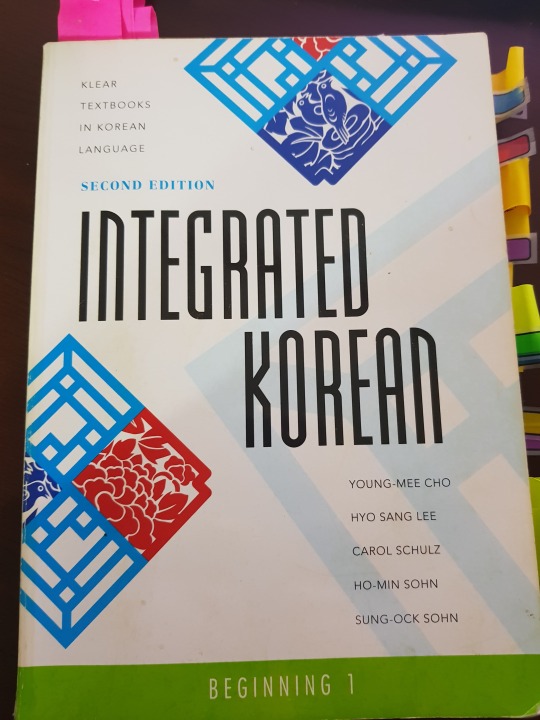
Please don’t mind how old and beaten up looking it is; this guy and I have been through a LOT together!
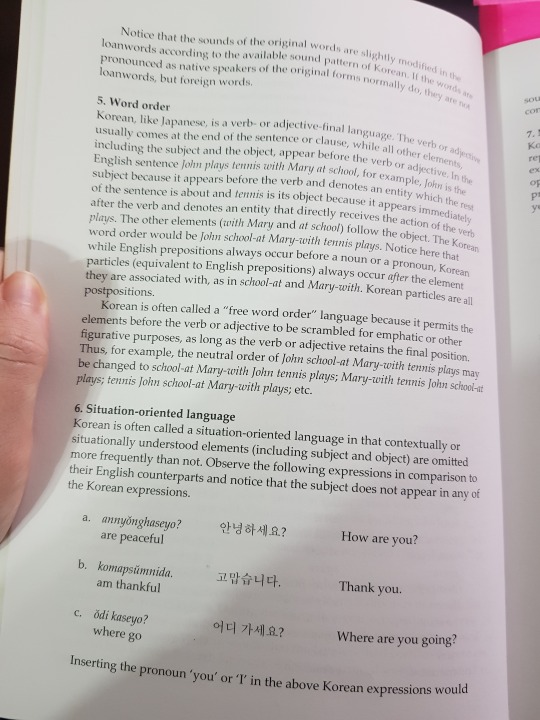
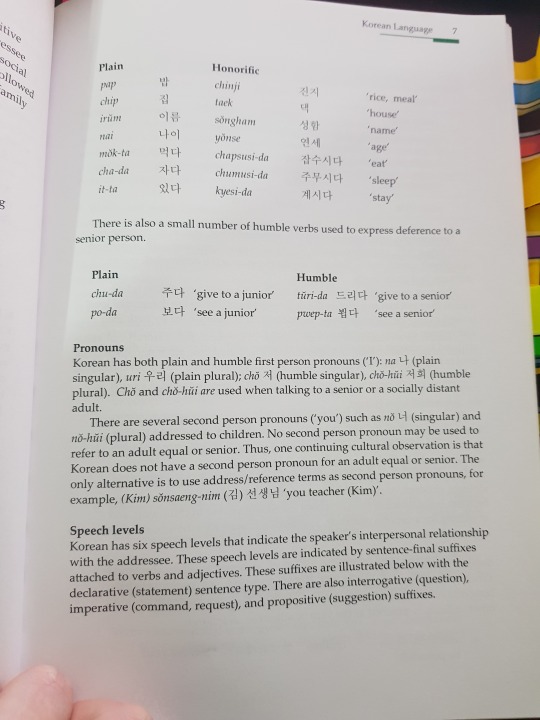
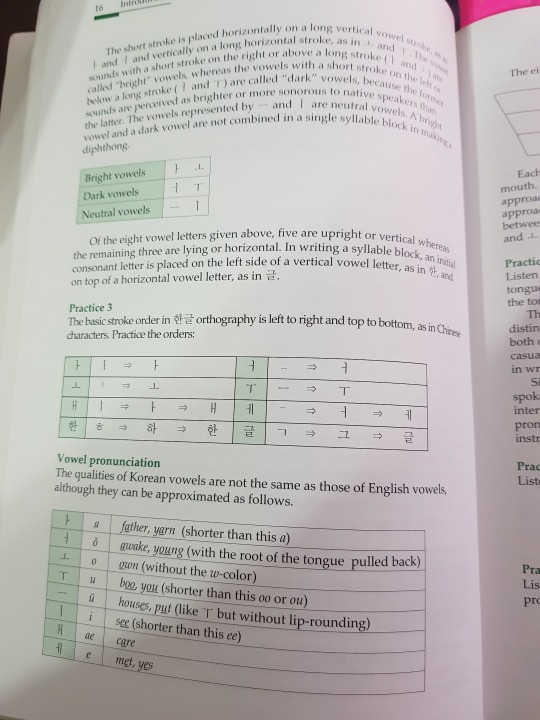
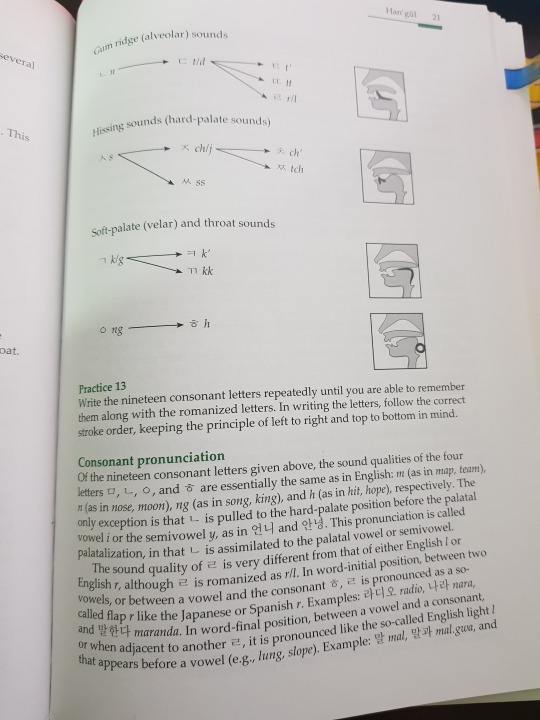
This is the stuff I skipped when I first got the book, and frankly, would have been invaluable to my learning. From the way I taught myself to pronounce Hangul, even these days I still have to push myself to differentiate my 으 from 우. But visually seeing how these sounds are formed is really important, especially for beginners. There’s a lot of sounds we as foreigners and especially as beginners struggle to differentiate. When I help at Diana’s classes, I find a lot of people have issues with 어 and 오 - let alone 에 and 애 and further 스 or 쓰. Of course it’s not a foreigner only thing; at the language exchange, while helping Koreans with pronunciation, I’ve found they sometimes hear things that aren’t there or can’t differentiate certain sounds, either. That’s just language. But knowing how to say things not only helps your pronunciation but when you’re talking to someone, watching the way they speak can help you differentiate sounds as yours ears get used to it.
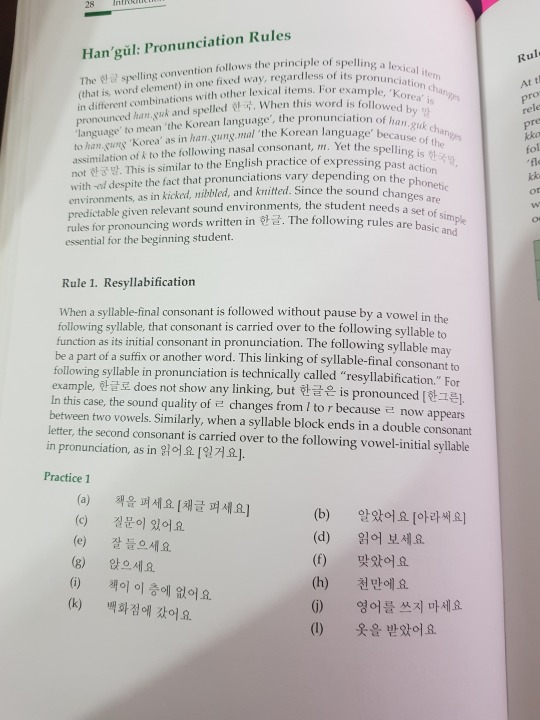
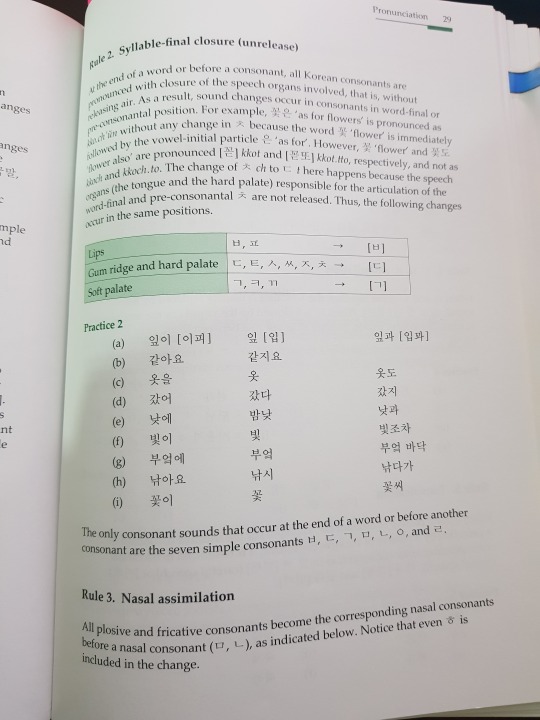
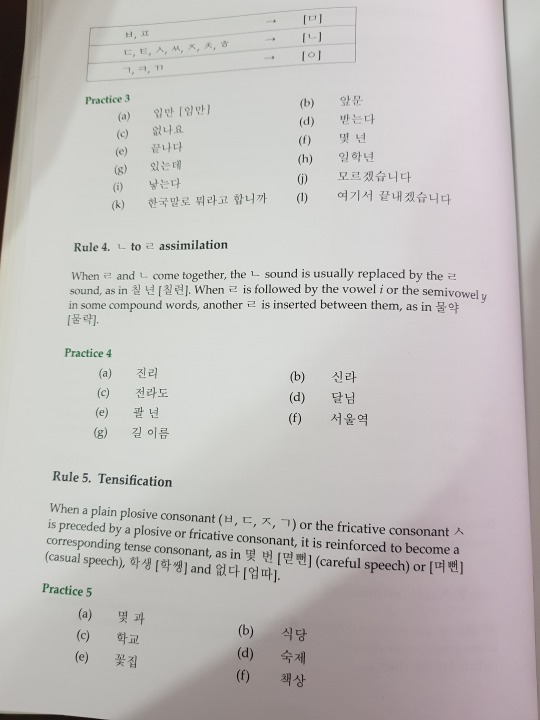
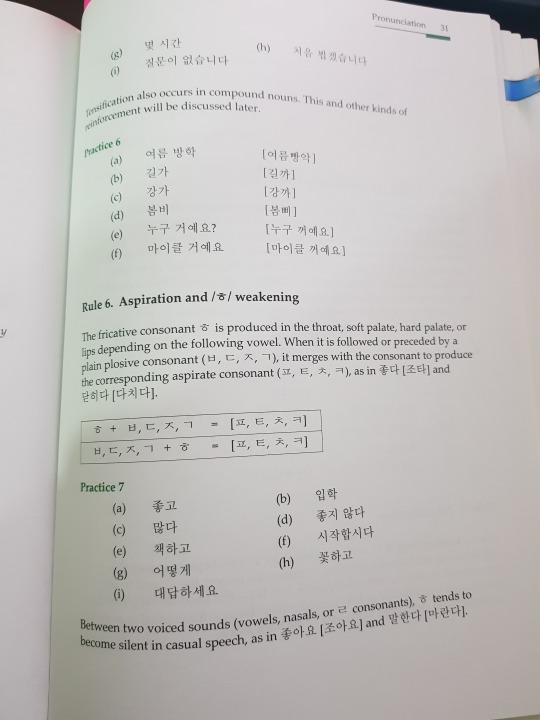
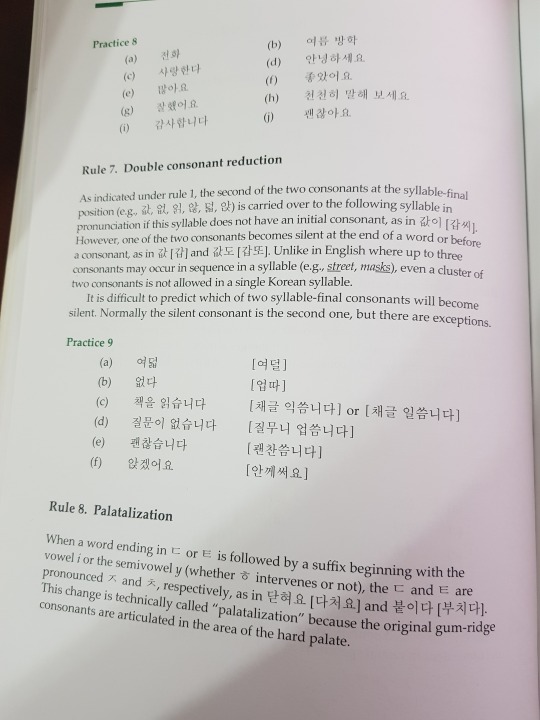
It’s actually quite extensive. Again, if I’d read the beginning, I would have figured out things like resyllablfication - a mouthful that simply means consonants carry over into empty spaces to make pronunciation MUCH easier. Instead, I spent a good while mispronouncing everything and wondering why speaking was so difficult.
Now let’s get into the good stuff!
Integrated is set up into Lessons that are then broken up into 2 conversations/dialogues. After each conversation, you’re given a new word bank, and some new words and expressions in your notes. After that it’s a couple to few pieces of grammar. Sometimes that grammar is a full grammar piece (like a sentence ending), sometimes it’s a particle, sometimes it’s about irregular /ㄹ/ or /ㅡ/ or something.
Typically, integrated is very detailed. There’s usually a lot of notes, examples that show varieties of way of use, and then exercises! I never got a workbook with Integrated so I can’t tell you much about it, but because a. I had no one to check it and b. I have so many exercises in the book, I didn’t regret this. A friend of mine who has used integrated told me that she feels the exercises in the book are sufficient enough because they’re very similar to what you see in the work book anyway.
Let’s have a look!
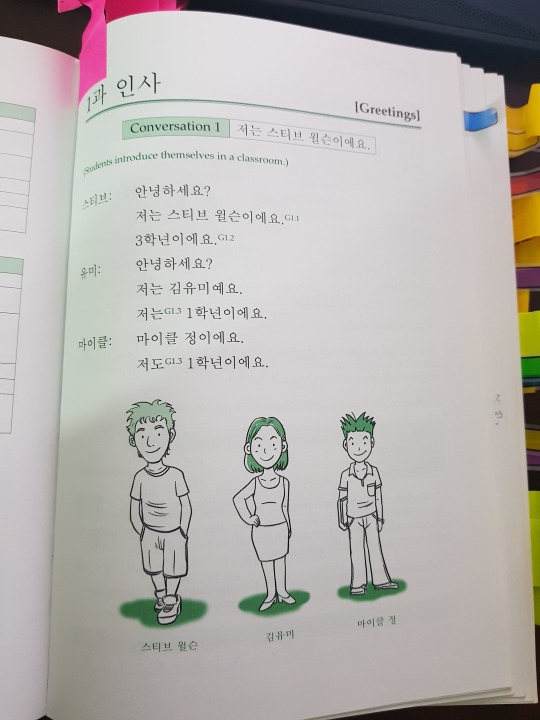
Look how short these dialogues start out. Ahh, nostalgia~
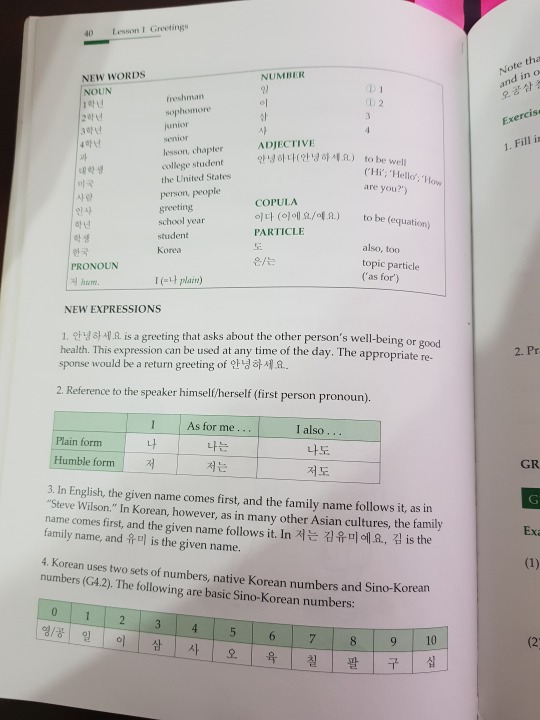
The word bank is always sorted by word type, which becomes useful when you get further in and realize that sometimes adjectives are conjugated differently from verbs! The New expressions heading usually is followed by really useful stuff that doesn’t always warrant its own grammar lesson but still is relevant to your learning.
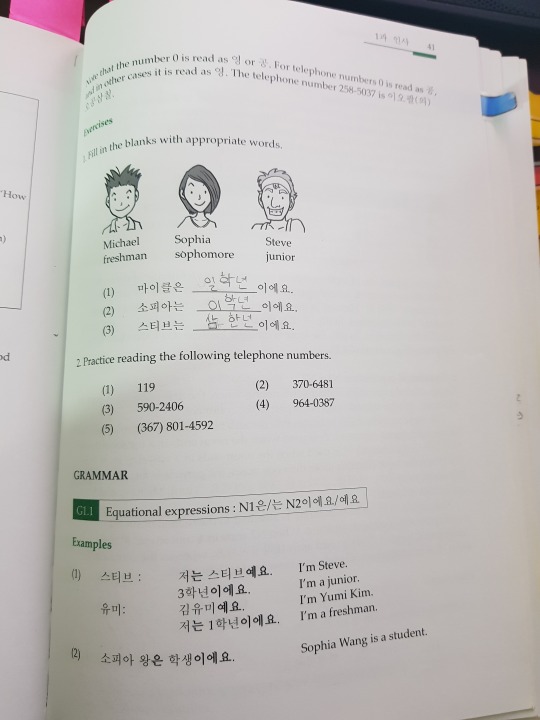
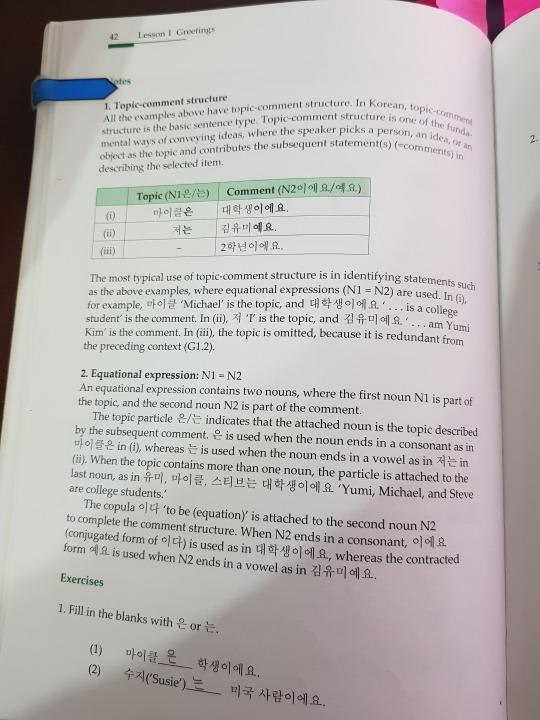
Grammar is always introduced first by examples and then explained in the notes. As you can see, Integrated can be very verbose in its explanations. For some people, this is beneficial. Others, not so much. I tend to like to learn my grammar inside and out; I’m not that great at learning by example or inferring reason, so this very verbose manner of explanation is great for me. Also, I have a tendency to overthink things, so when it’s laid out, it helps.
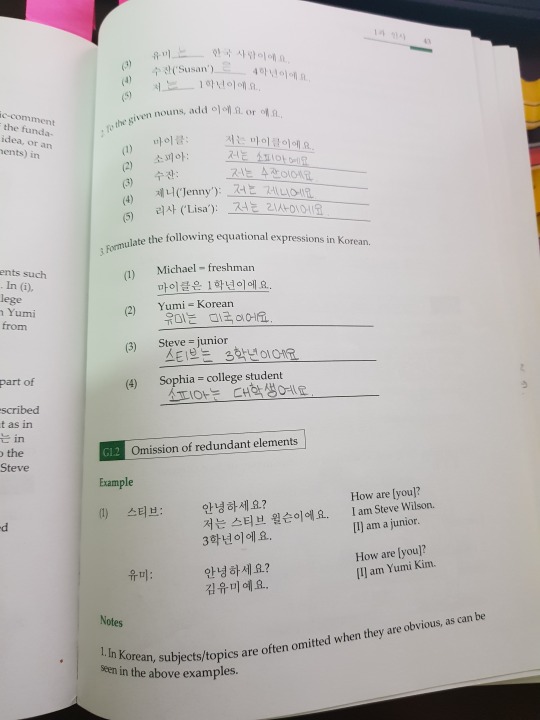
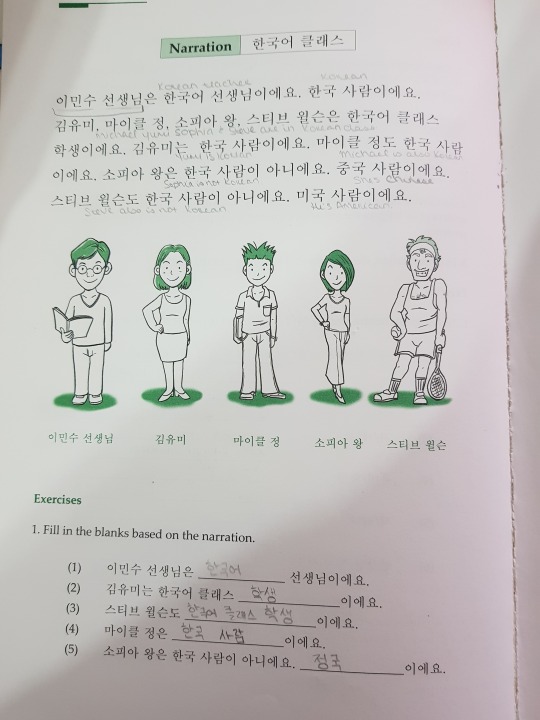
The end of the lesson is always presented with a narration that uses all of the grammar you learned in the past lesson and whatever the lesson’s central theme was (university life, transportation, food, etc.) There’s comprehension questions and activities. But the best part of the end of the lessons is all the stuff they tack on!
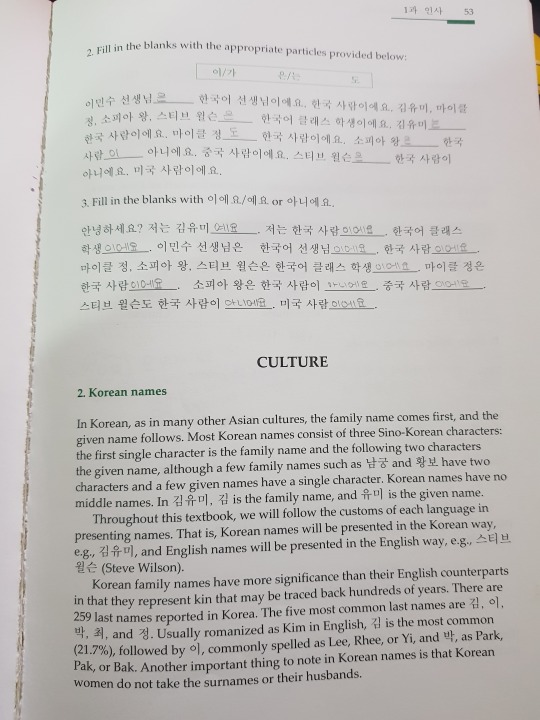
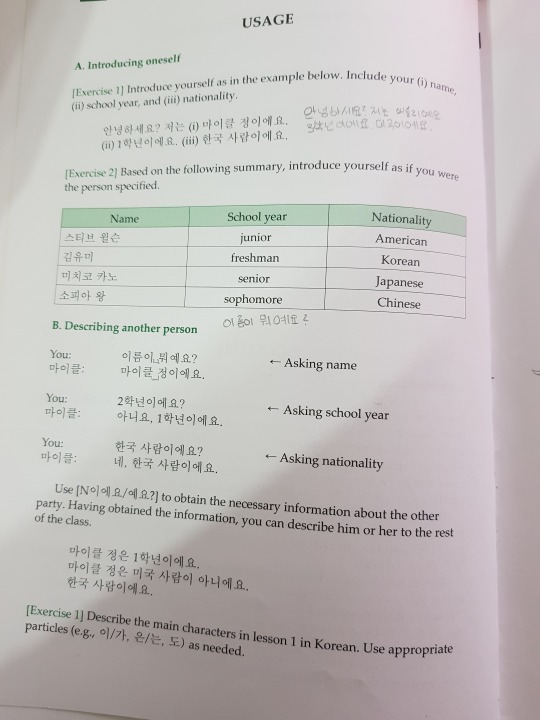
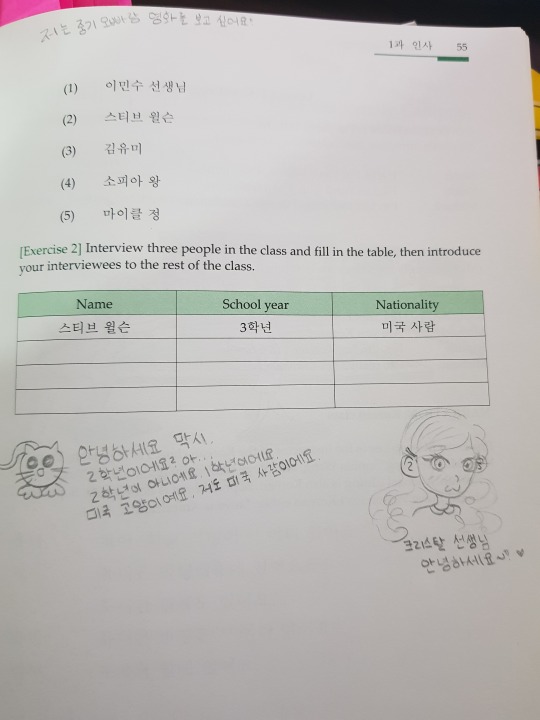
Ignore the doodles, pls. And the notes. I was a mess, okay!
The end of the lesson always features some kind of culture lessons where they teach you various matters about life in Korea and Korean society. It also goes further into detail about usage. Language is not a one way kind of thing. The way initially presented in the textbook is not the only way to say or express things. Further, it has more activities that build upon what you’ve done throughout the lesson. See why a workbook is virtually unnecessary?
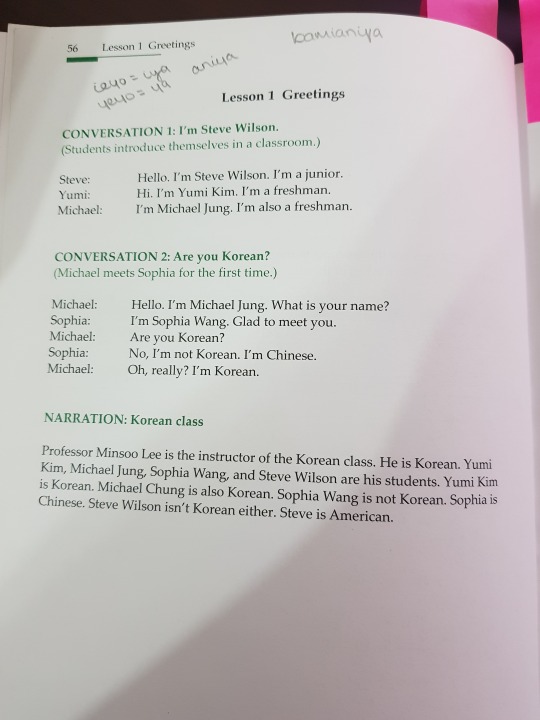
Importantly, the end of the lesson has conversation translations. As you can see, there’s no answers for the exercises, which could be a make or break thing for people. Having no one to correct it makes it hard to utilize the exercises.
Despite the fact that the book lacks answer keys, I find Integrated has been invaluable to my learning. Admittedly, I may be biased because of the time I’ve spent with these books, and thus I’ve grown fond, but even in retrospect I still feel they were and are incredibly useful.
Integrated textbooks are thicker than my EWHA textbooks - they're roughly the size of 2 EWHA books, which seems to make sense because Integrated has two beginner books and I believe for EWHA, level 1 and 2 are considered beginner and 3 seems to start on an intermediate level. As Integrated books are so big, they’re full of information. FULL! The first beginner book alone presents quite a lot of conversational grammar and vocabulary and beginner 2 (what I would think of as high beginner to myself) further expands on it.
Admittedly I was the most inconsistent studier until I came to Korea, so it’s probably unsurprising that I’ve worked out of these two books for the entirety of the time I’ve been learning. In fact I only JUST made it into my Intermediate books. I have a lot of reasons for that, but the point I’m trying to make is that I’ve spent all these years able to use the grammar and vocabulary from these books, so it’s really quite beneficial in my eyes.
(A comparison, for example, is the book my friend teacher Diana uses. Her lessons follow Beautiful Korean, a book that has 3 books in the beginner series, I believe, and each costs 16,000 won. Considerably cheaper, sure, than Integrated Beginner coming in at 30 a piece. But when you consider again that Integrated is the size of 2 textbooks, the price seems to even out. Further, Through us using Beautiful Korean, most of what we learned was only pronunciation and vocab. Only at the beginning of the 1-1 lessons were introductions and the most basic sentences and structures introduced. The actual act of making sentences and grammar doesn’t show up until 1-2. So further, if you consider comparison, you need all 3 books from the beginner series of Beautiful Korean to possibly probably equate to Beginner 1 and maybe 2? idk I haven’t seen what comes after Beautiful Korean 1-3; it might still be beginner level for all I know! That’s not to put down the Beautiful Korean series at all but as far as values, when you consider all 3 books will cost about 48,000 won, Integrated, to me, seems more valuable. But I digress.)
Integrated Beginner 2 stays much the same and follows this same format. In fact, even in Integrated it does, though notably the conversations grow longer and now after each conversation there’s comprehension questions, which is a welcome addition!
That said, EWHA certainly has it’s merits, and my shallow self will admit the fact that they are ever so pretty certainly endears me towards them - but I promise it goes well beyond shallow reasoning.
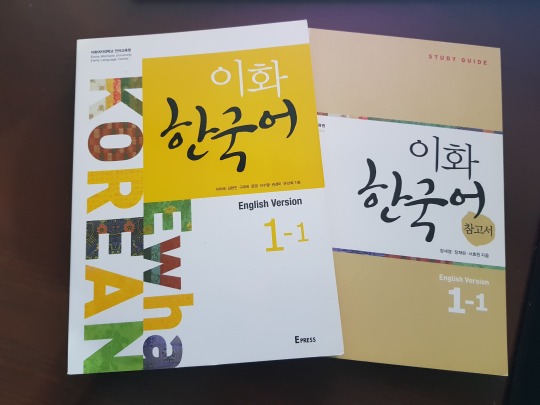
EWHA is best paired as a set with it’s companion study guide. As you will see, EWHA does not go as deeply into explanation about things as Integrated - and thus we have the study guide. Sometimes the study guide doesn’t offer a deeper explanation, either; often it’s unnecessary and as I’ve mentioned before, EWHA seems to want you to understand things through context and by gleaning things yourself. The study guide provides more examples, though, in case an explanation isn’t quite enough; you’re supposed to figure out usage and context with those examples. Sometimes it’s great! It depends on how you learn, to be honest. I find I need lots of examples AND lots of explanation, but I’m trying to learn to mine more from examples without being handheld and spoonfed, but like I said - we all learn in different ways.
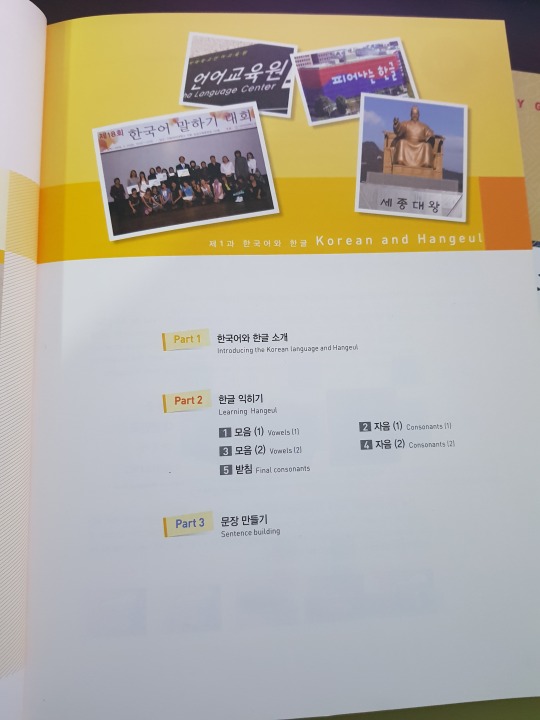
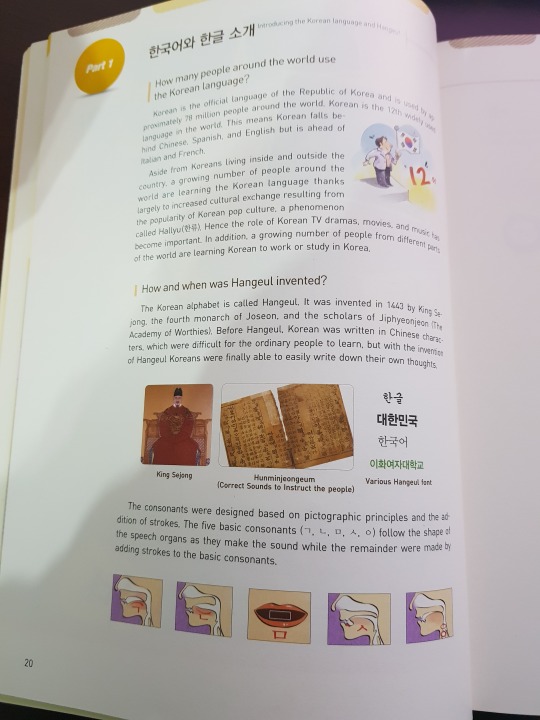
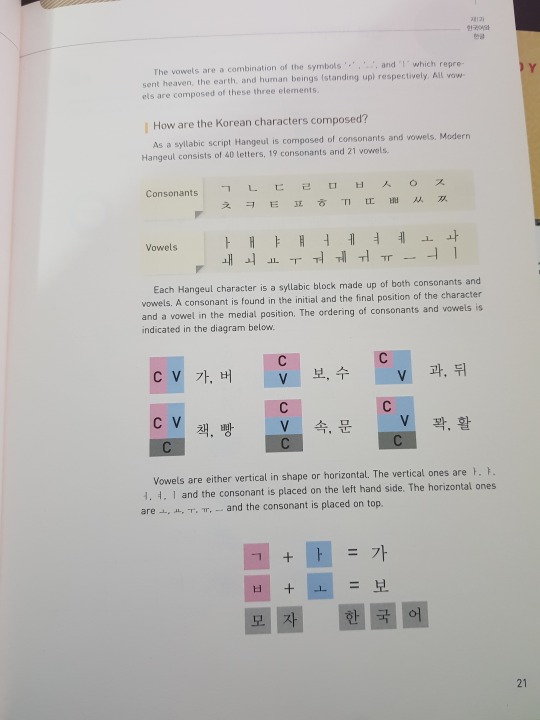
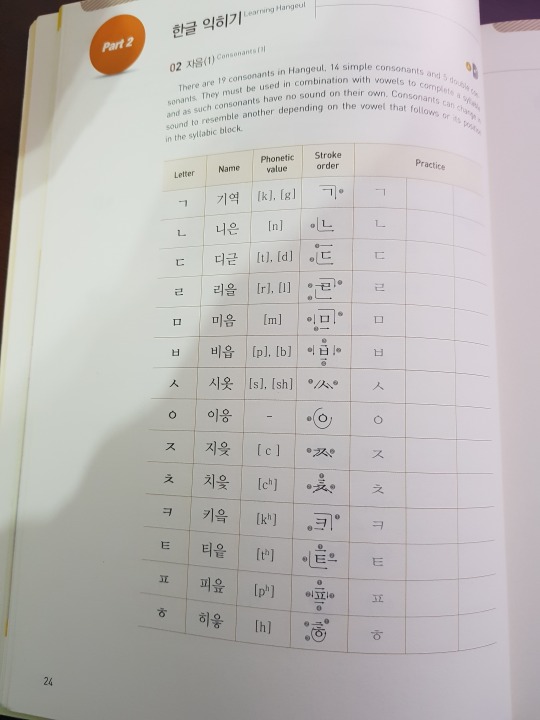
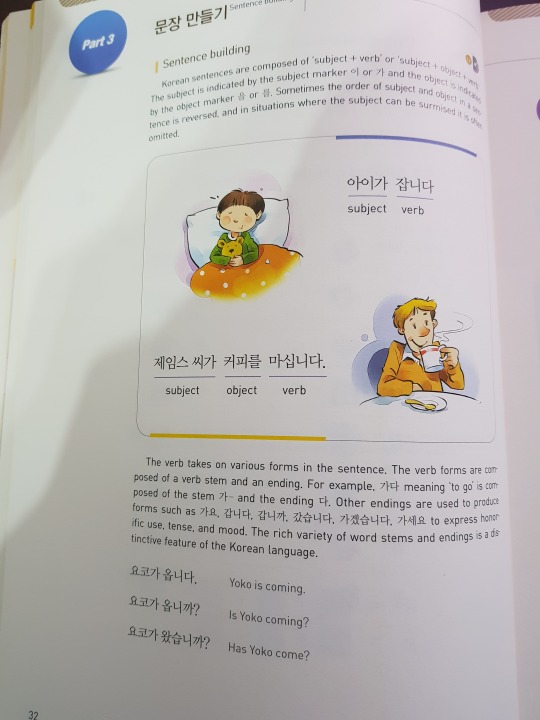
Much as Integrated does, EWHA has a good introduction to Hangeul in both pronunciation and construction. Though I don’t find it QUITE as indepth as Integrated is, EWHA tends to throw little tips at you as you work through the books that Integrated introduces in the beginning, and really you don’t miss much by getting them later.
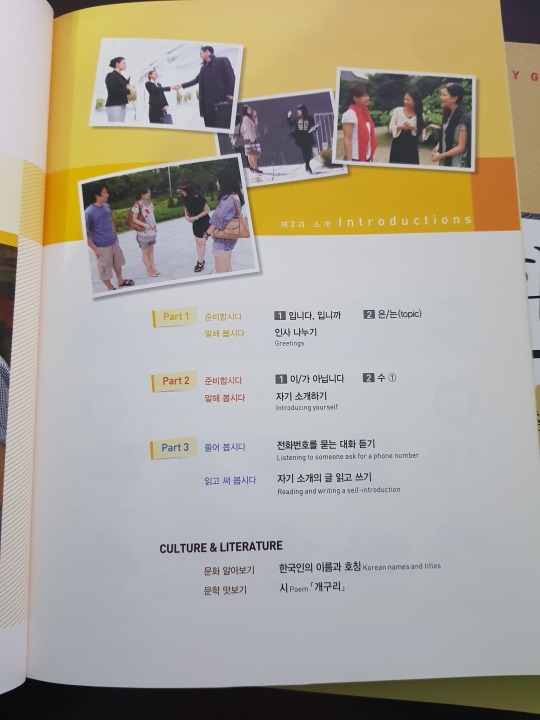
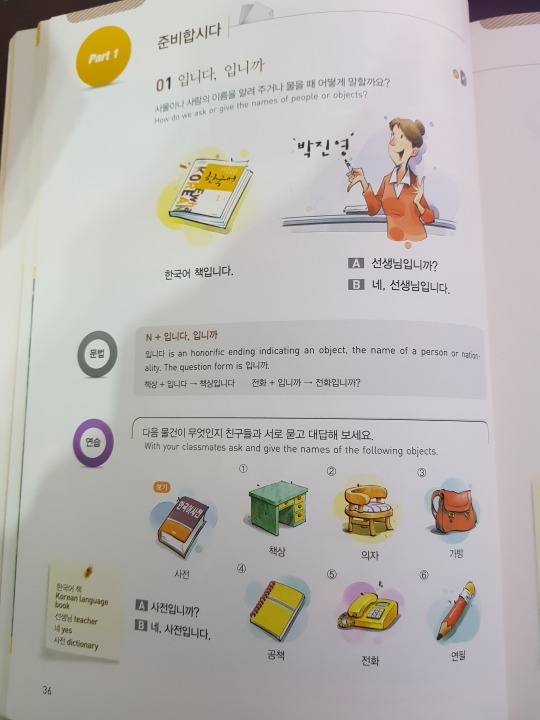
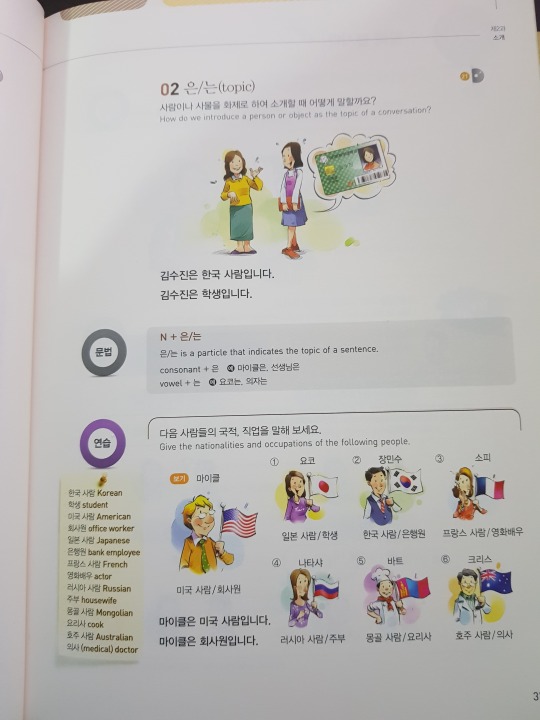
So Integrated is set up in lessons with conversations per lesson. EWHA instead gives you two prep lessons which will lead to a conversation practice. And where Integrated introduces one big word bank per conversation, Integrated just throws them all into your prep lesson. Sometimes it’s big, sometimes it’s small. Something useful that I didn’t do but probably should have was going through the entire lesson and write down the vocab or make flashcards if that’s your thing and review them before you get to them that way they have some familiarity to you. Or, on the other hand, you can go through at the end of the lesson and see which words you remember and then play with the ones you don’t. Your call!
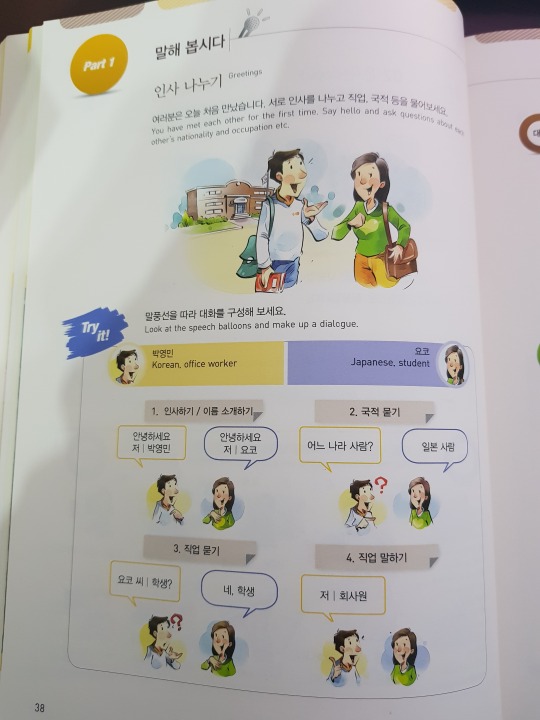
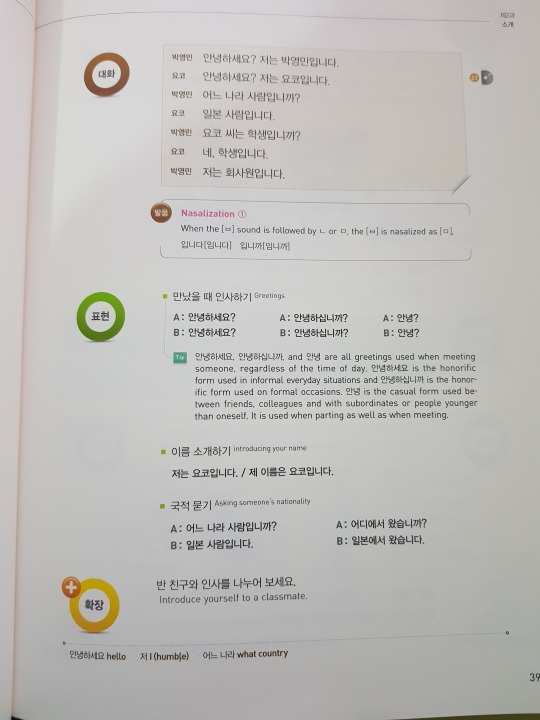
The prep lessons build up to a practice conversation! You get a little information about your roleplay characters and what you’re supposed to be talking about. Basically it’s guiding you and nudging you to use the grammar it’s just introduced to create a conversation. It tells you things like “make a greeting and introduce yourself” “ask their nationality” blah blah and you’re supposed to construct the conversation. On the next page they’ve written out the conversation how they want you to follow it, so don’t look! Cover it up as you try to do it so you don’t rely on just reading it. It’s a really beneficial way of learning to make sentences and especially to think outside of the box of what you’re used to!
As you can see on that page, sometimes they throw in pronunciation tips, which I definitely needed when I first started out! I was lucky I started with TTMIK who do a good job of explaining why ~습니다 is pronounced as ~슴니다 but other things I didn’t learn about until later.
They also give you conversational tips! Obviously you might not be able to figure out the conversation fully on your own, but the book has extras for you. It’s good to try your best and then to check the dialogue and see how or why they came up with what they did. I really like this part, because sometimes I get fixated on one way to say or express something, but as with all languages, there’s many ways to say things! I don’t know why I become so uncreative when I’m trying to construct things in Korean; I guess a sense of unfamiliarity where with English I know exactly how to throw things together. So these are parts are VERY IMPORTANT in really expanding your manner of speech and understanding!
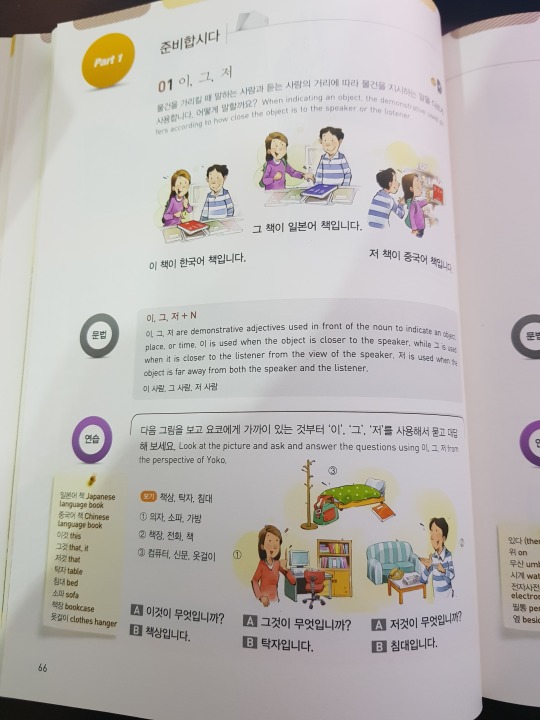
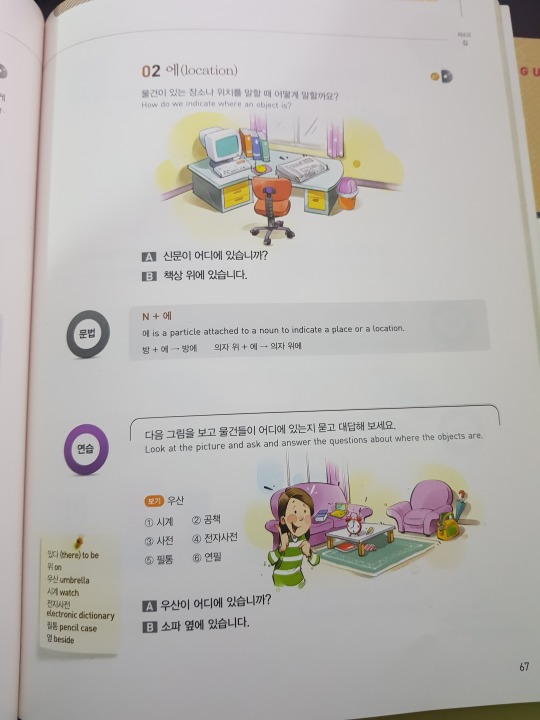
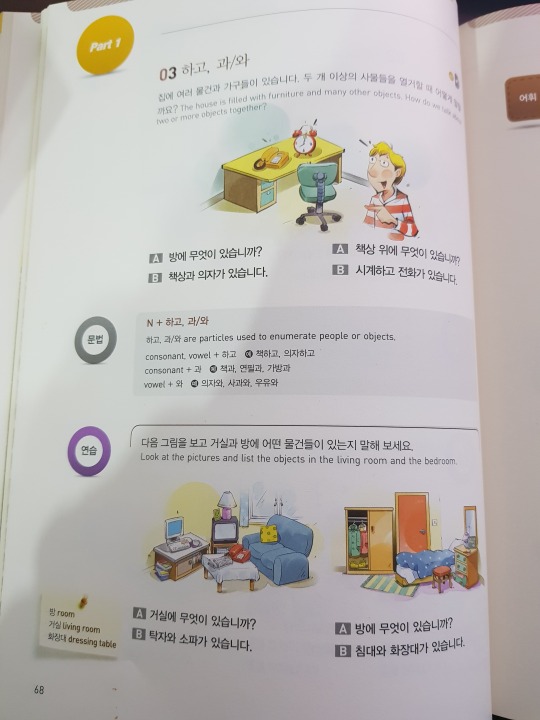
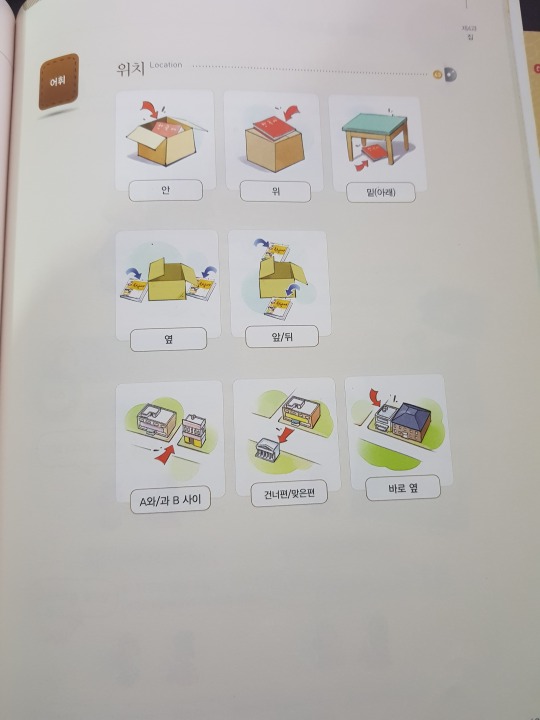
As you can see, it continues this way, following this sort of pattern of prep lessons leading up to a conversation practice. Occasionally, EWHA will throw in a page with images and what they are in Korean. Obviously, you’re supposed to figure out what they are visually but I’ll confess sometimes I’ve had issues with that, but don’t worry; the study guide has you covered! We’ll get to that soon, I promise.
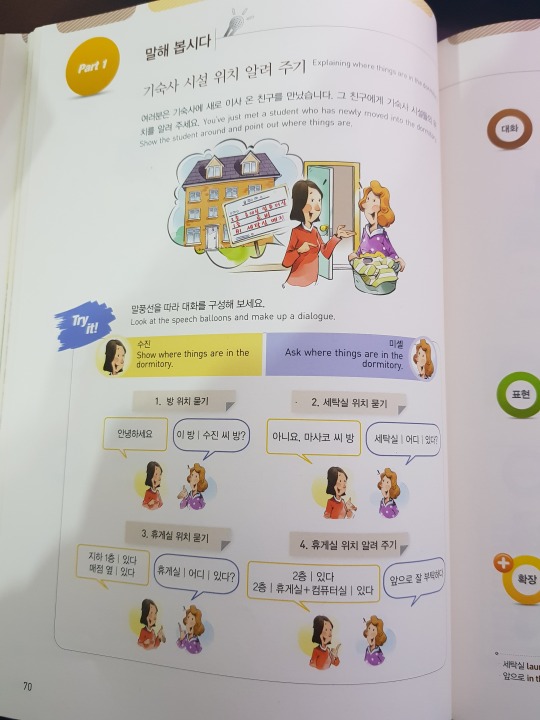
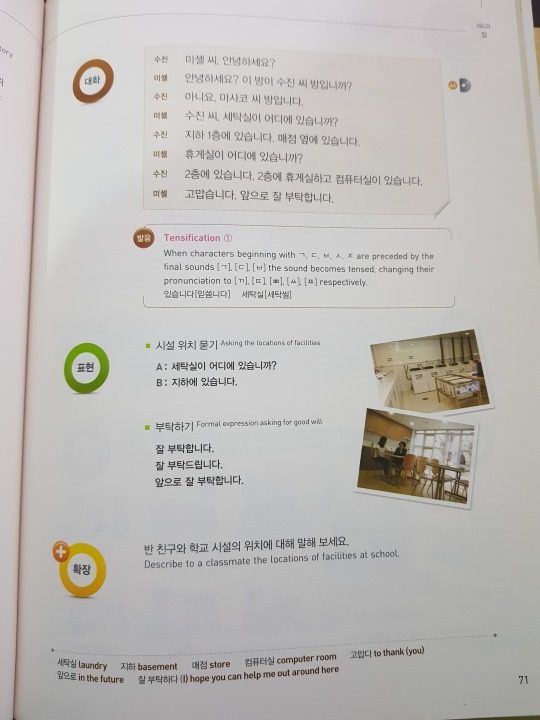
Another example of the conversation practice. Note there’s even MORE vocab at the bottom!
Towards the end of the lesson, there’s always an audio piece that you listen to and answer comprehension questions over and you get MORE fun little expressions like above, except these you’ll have to find in your study guide. It’s really important you get these as a set because if you don’t, you’re lacking an entire half of your EWHA experience - and the study guide just makes it better for self-learners.
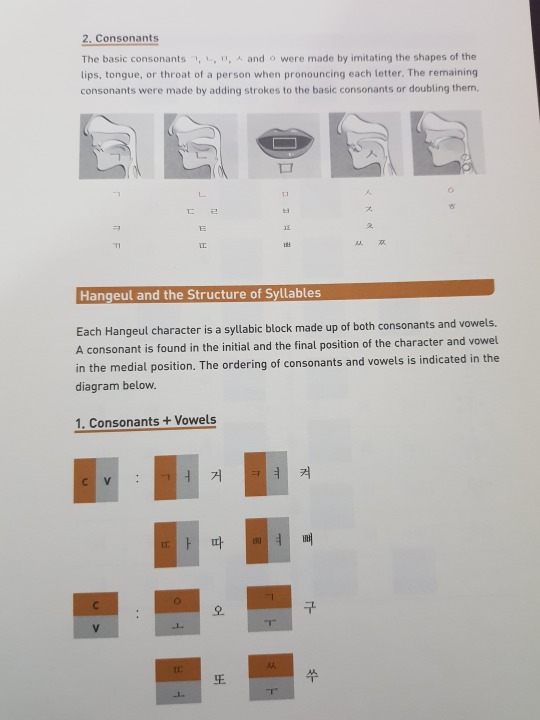
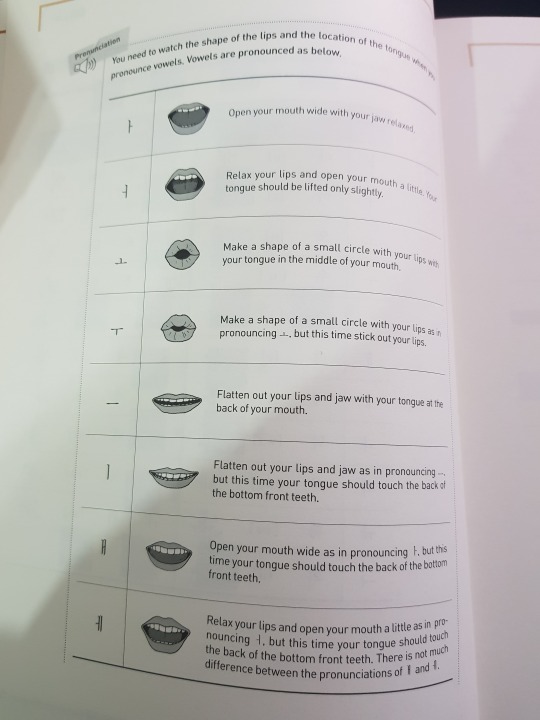
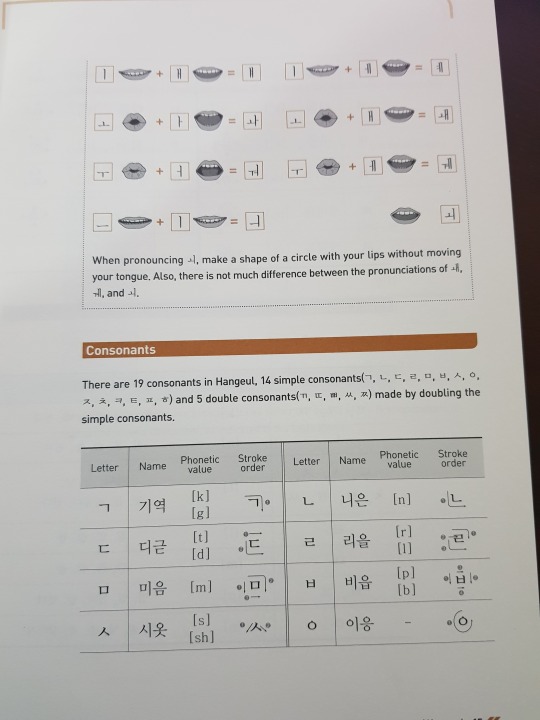
Like the textbook, it also opens with some pronunciation and intro to Hangeul type things. You really aren’t lacking for this kind of stuff, when it comes to these books! It’s also why I always recommend these to beginners! While I am fortunate to currently be in Korea where I can practice and have people help correct me, when I started out self-learning there was no one to do that and I was going off of (terrible) romantization to figure out how to say things. It was bad!
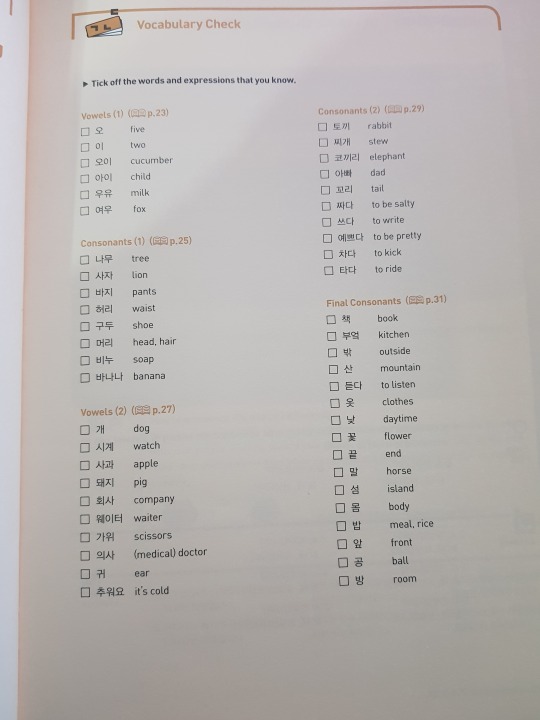
At the end of every lesson, the study guide has a vocabulary check and this! Is! One of my favorite! Things about the study guides!!!!! In the series 1 books it’s very often just words but as you get into series 2, you get phrases and the such which is useful because, again, sometimes I just forget how to construct things I know and it’s nice to see it used in ways that makes you go “ahhh” and helps you make better use.
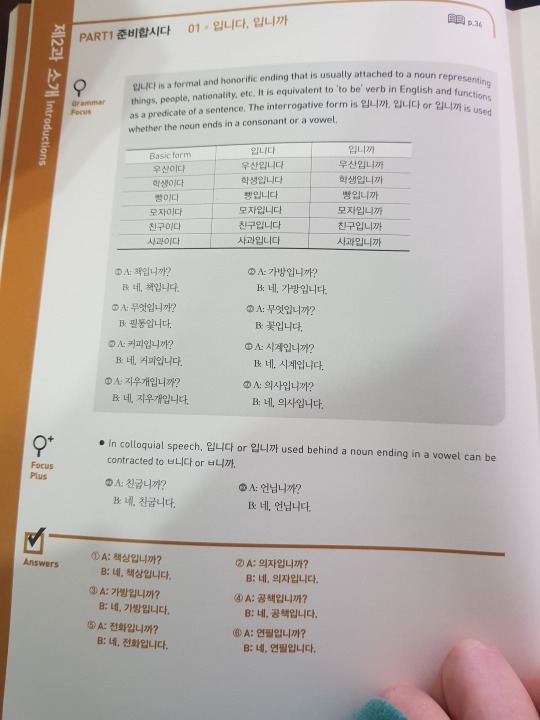
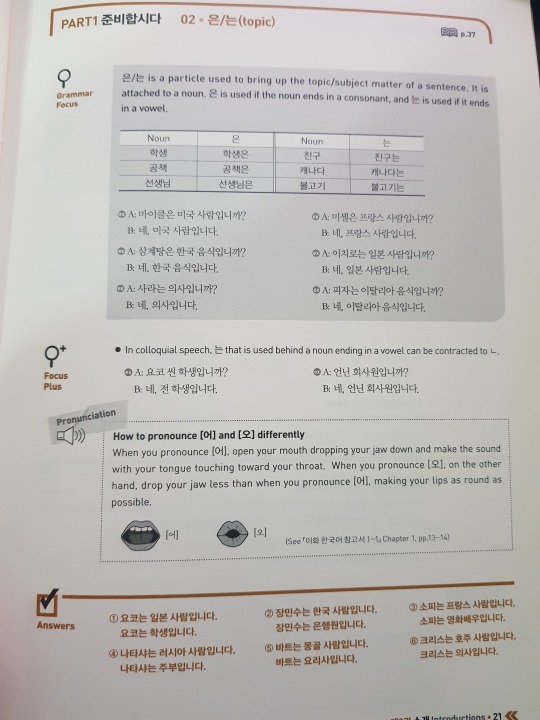
The study guide always shows which pages of the textbook it corresponds to. You can see how there’s a tiny bit of extra information in here; there’s not a lot at this point, because these things don’t necessarily need as much explanation - but there’s plenty of sample sentences! Read the sample sentences! If you’re having a hard time understanding something, reading the samples might be able to help you glean what you’re supposed to be understanding.
As you can see, there’s also an answer key to the activities in the book, which is really great if you don’t have anyone to check your work!
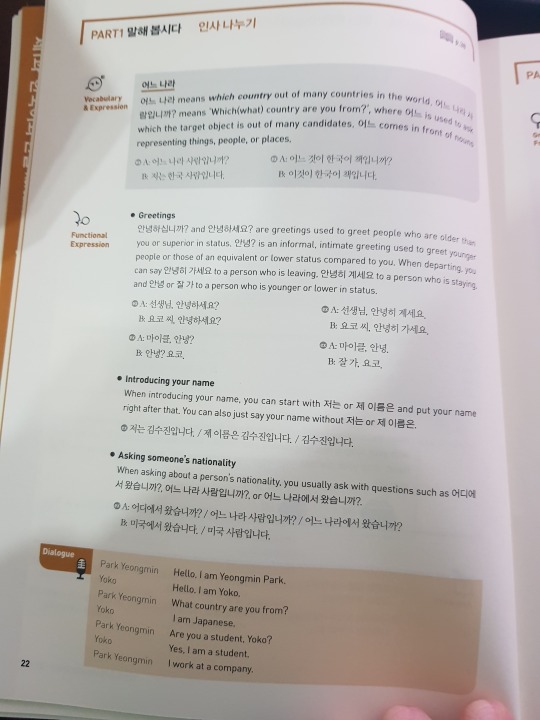
Remember those little expressions in the conversation practice pages? The study guide goes further into depth on them and helping you with your usage. This is the second best part of the study guide! It’s just really full of extras to help you out!
You can also find transcripts for the audio dialogues in here!
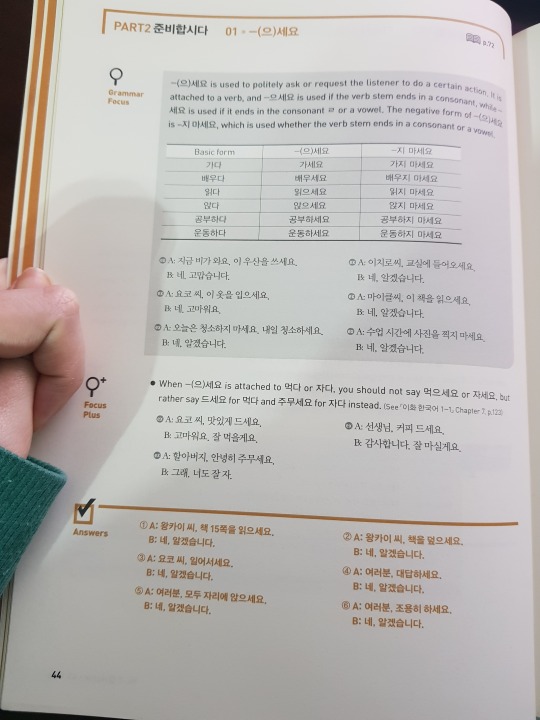
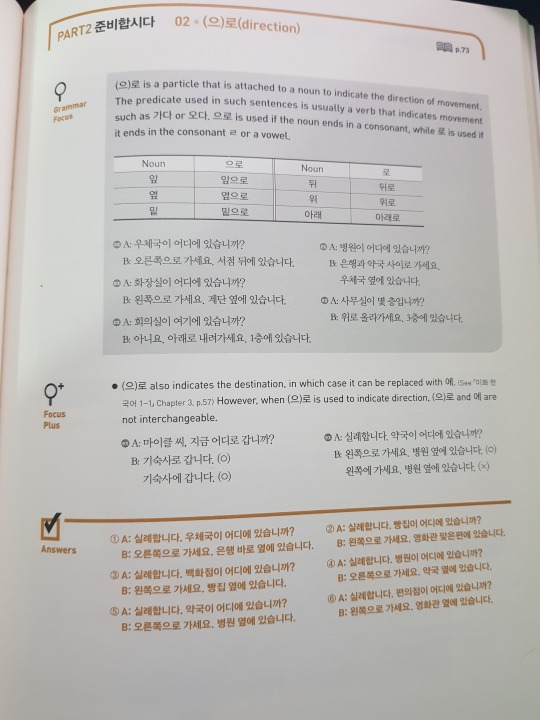
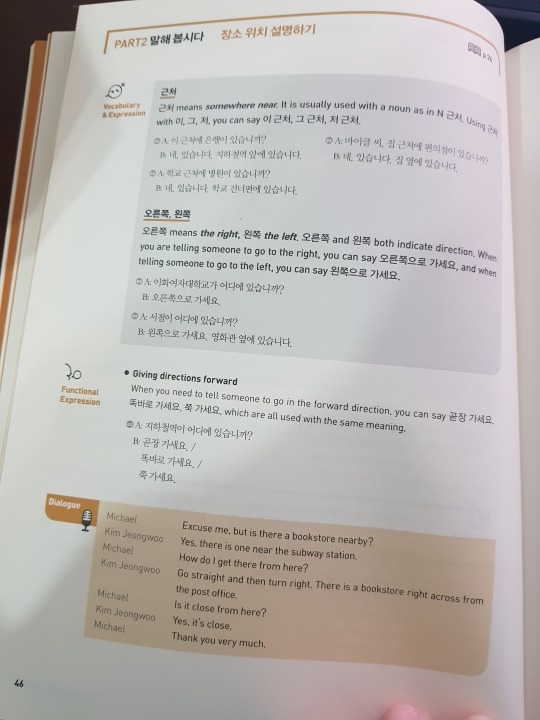
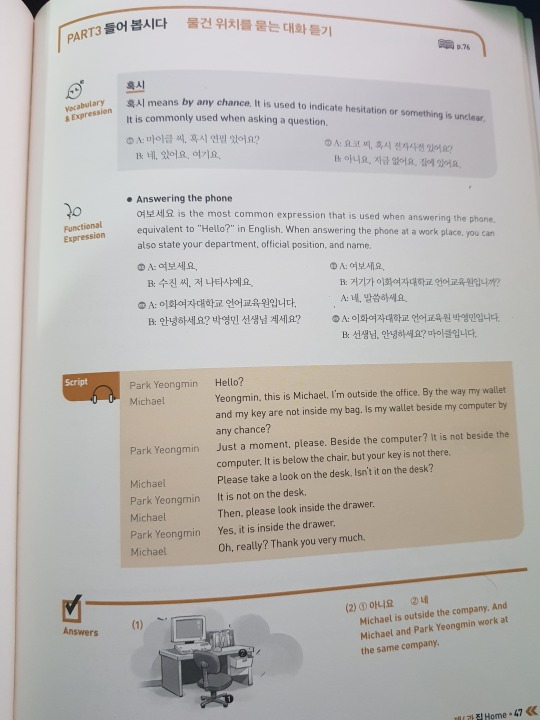
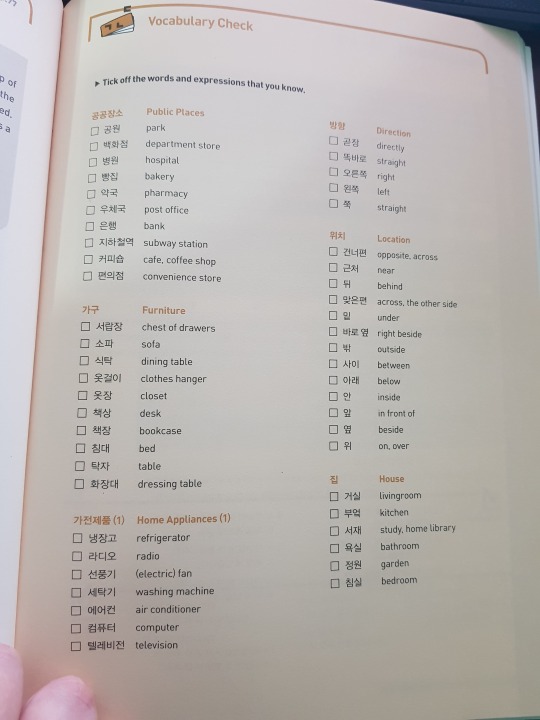
Just a few more samples!
Both sets are really wonderful for learning Korean. I maintain that the “best” one is whichever adheres best to your learning style. If you, like me, require lots of explanation, then Integrated might be best for you. It’s extra full of activities which really negates the need for a workbook. Unfortunately, you need someone to check your work, because while there’s translations for dialogue, there’s no answer key for your activities. EWHA is great for a self-studier in the manner that they DO provide not only transcripts/dialogue translations but also answer keys. Someone who doesn’t necessarily need things explicitly laid out can benefit from EWHA and to be honest, it could probably help people learn TO take meaning through context. Again, if you go with EWHA, you really need the Study Guides as well for the entire experience.
Some things: re EWHA. As you can see above, in books 1-1 and 1-2, your instructions and lesson introductions are written in both English and Korean. By series 2, the English there disappears. You still have English explanations and vocab translations, but your activity instructions and lesson intros are entirely Korean. By series 3, it’s FULL Korean. Your study guide still has English!!!! But your books? Korean! Even the vocab!!!!! I’ll try to remember to add pics of that later. But the idea is, of course, that you’ll learn as you go and eventually you won’t need it entirely written in English. I’m certainly not at that point yet, but I hope I’ll be able to get there soon!
Obviously, textbooks don’t come very cheap, so if you have to choose between the two sets, weigh your pros and cons. That said, the way I use them typically is that Integrated gets prioritized and then when I need a break or a review, I use EWHA. I used to review through Integrated but I find I’m not really taking in anything new when I’m just going over something I remember. By using both sets, I get different vocab sets, different situations, different kinds of usages of the grammar I’m learning. Both introduce things at different times. I’ve learned some things from EWHA that hadn’t been introduced to me at the time in Integrated where sometimes Integrated introduced to me things EWHA wouldn’t for a LONG time get to. But they both give me unique, fresh takes on things I’m learning. I’ve bought my books over a long period of time, so if you DO want to play with both, I’d say start with one set and later on down the line, add the other, so you can spread out the purchases.
Regardless, even if you can only choose one, I think they both have very strong merits as learning tools - and there’s always additional (free) options to help pad out your learning. I still make use of Talk to Me in Korean when I need to review something or I want another take on it or I need another explanation. When I REALLY want to get in-depth with things, I hit up How to Study Korean, where things are really broken down and in-detail explained. Don’t rely on just one study option. If you choose to use a textbook series, pad it out with the free online resources as well! The more ways you can see things used, the better it will stick with you!
I hope this is able to help a little! If you have questions, feel free to ask me! I can try to get some simple comparisons later of Integrated Intermediate level and EWHA series 3 books, and eventually I’ll do some write ups about the TTMIK books I own and the ways I find them useful!
12 notes
·
View notes